

Email all work to me at [email protected].
Thanks to Samantha, Kristia, and Samantha, Alyssa, Indica, and Samantha, and Kiana, Marjorie, and Samantha for looking ahead and calling my attention to technical issues on this webpage and enabling me to resolve those issues as quickly as possible.
No Feelings Were Hurt in the Making of this Course.
The Loser Moment: From time to time, usually during a two block class, I will take a moment to read you a passage from a work I like or play music for you and talk about it or show you a painting and talk about it. You can play with the lighting. I will have a flashlight so I can read in the dark. Students are welcome to take your own loser moments. If you like the moment, please do a slow clap. But be sure not to join in the clapping. Since it will have been a loser moment, a failed slow clap is the best response.
NOTE BENE: You can find many great films on UF Kanopy and watch them for free. You will need to download a VPN onto your computer and then connect if you want to watch films on Kanopy off-campus. Instructions can be found here: vpn.ufl.edu
All linked readings below will take you to a pdf. All readings that are not linked you will have to find on your own.
Since I know many students read online rather than in print, I will make sure we can always get to the page or to the shot we are discussing by having someone, either me or a student, standing near the computer at the front of the class so we can get there. I do not allow any electronic device such as iphones or ipads or laptops, etc. to be open during class. Everyone needs to be in class 100 percent. Learning is not something you can do well if you multi-task.
It may take you two to three weeks to get the hang of how this course works if you decide to take it. I will asking you to write and think and read in ways no other teacher has. I don't want you to be confused, hwoever, and merely default to doing what you already know to do. The point of taking this class is to learn some things you don't already know how to do. If you have any questions, please do ask them. I should add that my course websites are kind of like art installations you'll be walking through.
At times I may resemble a curator.
The End: Physics as Metaphyics
Typos Matter! X-ING A PARAGRAB by Edgar Allan Poe 1850
Repetition, AND the LIMITS of RESEMBLANCE,
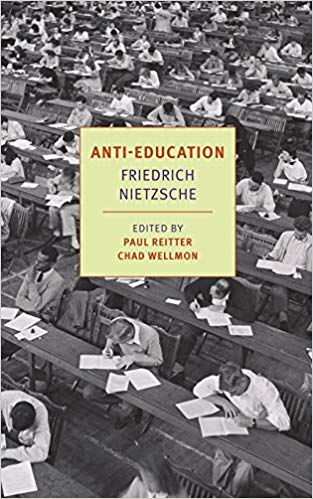
"Historical, in fact philological, considerations have slowly but surely taken the place of profound explorations of eternal problems. The question becomes: What did this or that philosopher think or not think? And is this or that text rightly ascribed to him or not? And even: Is this variant of a classical text preferable to that other? Students in university seminars today are encouraged to occupy themselves with such emasculated inquiries. As a result, of course, philosophy itself is banished from the university altogether."
Friedrich Nietzsche, Anti-Education
All linked readings will take you to a pdf. All readings that are not linked you will have to find on your own.
Since I know many students read online rather than in print, I will make sure we can always get to the page we are discussing by having someone, either me or a student, standing near the computer at the front of the class so we can get there. I do not allow any electronic device such as iphones or ipads or laptops, etc. to be open during class. Everyone needs to be here in class 100 percent. Learning is not something you can multi-task.
I am usually in the classroom by 8:00. I will play music on the computer, sometimes a movie clip, sometimes a book, and talk about them to students who happen to be there. You are welcome to ignore me until class begins at 8:30. :)
"Many people offer themselves as models for success – “If you follow my example, you too can gain wealth and recognition” – but few stand up as proud examples of getting by; yet in the complicated messy human environment, doing just okay may involve extensive, exhausting labour and constitute a remarkable achievement. Christina Patterson’s book of essays, The Art of Not Falling Apart, shames the sleek, smug lessons of the Lean In brigade by celebrating such achievements, and the varied circumstances, uncertain fortunes and individual abilities that shape human effort."
TERRI APTER, Losing your self: What happens when life turns against you

News on the March (formerly known as "Outburts")
Poor Richard’s Almanac:
BURT’S Prognostications, Prophecies, and Predictions
Ten minutes of birdsong from the English countryside
All beginnings are dangerous.--The poet has the choice of either raising feeling from one step to the next and thus eventually increasing it to a very high level--or else attempting a sudden onslaught and pulling the bell-rope with all his might from the beginning: both have their dangers: in the first case, that his audience may flee out of boredom, in the second, out of fear.
--Friedrich Nietzsche, Human, All Too Human II, "Mixed Opinions and and Maxims," section 163, ed. Gary Handwerk (Stanford UP, 2013), 67.
Please read the Class Policies now.
You will need to watch all assigned films on your own. You may rent, borrow, or purchase them (as downloads or discs).
Friedrich Gulda - So What, A Portrait (2002) with English subtitles
Email all work for the course to me at[email protected]
It is essential that you understand what I mean by discussion question. If you send me questions that are merely perfunctory or are not what I consider to be genuine discussion questions, I will not post them or accept them. If you don't see yours posted in the emails I send you each monday and Wednesday, you can also ask me why I didn't during office hours or by appointment. I do really want to help you learn. And I am quite patient. We can communicate through it. My office is in 4134 Turlington.
Rhonda Lieberman, "THE LOSER THING," Art Forum SEPTEMBER 1992, VOL. 31, NO. 1
TENTATIVE SCHEDULE (Please expect minor adjustments to be made in the schedule from time to time; all changes will be announced both in class and on the class email listserv; this webpage will also be updated. ) The Loser vs. the flaneur, the dandy, the buffoon, the jester, the fool, the madman, the defective, the alcoholic or addict, the con man, the malcontent, the wanderer, Poe's "Man of the Crowd."
Here is your first assignment, due, August 27 by 5 p.m. [email protected]
Create a word document with your last name as the title of your document. Write two discussion questions (or DQs), numbered one and two, and three BIG WORDS on Readings One and Two (four discussion questions and six big words in all). Put your name at the top of the word document. Just Your Name. Nothing else. Nothing. Else. Email your word document (as an attachment). It is essential that you understand what I mean by " discussion question." If you are uncertain as to what I am asking of you, namely, to respond to the readings themselves, not use them as launcing pads to get to other topics, just stay with the readings. Reread. Do not default to something you know how to do just because you don't know for sure how to write a discussion question. Don't be a loser! Trust yourself. If you send me work that is merely perfunctory or is not what I consider to be a discussion question, I will not post it or accept it. If you don't see your DQs posted in the emails I send them to the class listserv each Monday and Wednesday evening, you can always ask me why I didn't during office hours or by appointment. We CAN communicate through it. My office is in 4134 Turlington. Email me your attached word document to me at [email protected] by 5 p.m., August 27.
DQs are always due by 5:00 p.m. the day before class.
Walter Benjamin, "The Destructive Character"
August 24: From "I Get That" to "I Don't Get That": "Moral Studies"
A Provocation: Why Destruction, Hate Speech, and Hatred Can Be Good Things in the Public Sphere
Moral Studies: Let's Take a Detour and Examine the Elitist Neoliberal Discourse of Civility
Motivational or Inspirational Speakers Dive into the heart of the Roland-Garros atmosphere! Chapter 3: motivation.
Samuel Beckett, From an Abandoned Work
Self-Help (or Self-Harm?) vs. Shelf-Help and Shelf Love
|
bl.uk/collection
Religion; divination; Sortes Vergilianae; Carl Jung: Tarot Cards Provide Doorways to the Unconscious, and Maybe a Way to Predict the Future; Cartomancie;Tarocchi Cards of Mantegna at NYPL; Jacques Derrida, “My Chances / Mes Chances: A Rendezvous with Some Epicurean Stereophonies” |
"A sense of embarrassment often goes unnoticed as the source of a successful enterprise. When I began, ten years ago, to create a more satisfactory order among my books, I soon came across volumes that I could not bring myself to get rid of but that I could no longer bear to leave where they were. In this way, a motley collection came together over the years, a 'Library of Pathology,' long before I thought to actively build a collection of writings by the mentally ill--indeed, long before I even knew that books by the mentally ill existed. --Walter Benjamin, "Books by the Metally Ill: From My Collection" Selected Writings 2 (1),123-24. 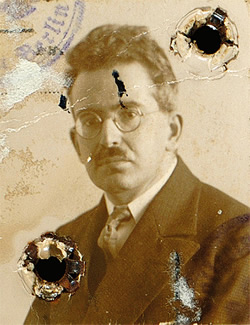 |
Due, August 27 by 5 p.m. [email protected]
Create a word document with your last name as the title of your document. Write two discussion questions, numbered one and two, and three BIG WORDS on Readings One and Two (four questions and six big words in all). Put your name at the top of the word document. Put everything into one document. Do not send me two documents. Please. Do not email me at [email protected]. Email me at [email protected] Email your word document (as an attachment) . It is essential that you understand what I mean by discussion question. If you send me work that is merely perfunctory or is not what I consider to be a discussion question, I will not post it or accept it. Email me your attached word document to me at [email protected] by 5 p.m., August 27.
August 28:
Reading One:
Walter Benjamin, "Books by the Mentally Ill: From My Collection," Selected Writings 2 (1)
Reading Two:
Ludwig Wittgenstein, The Blue and Brown Books (Preliminary Studies for the Philosophical Investigations), pp. 44-45
Recommended Reading (FYI):
Walter Benjamin, "The Path to Success"
Thomas Frank on "positive thinking" in Inequality and Populism: The Vicious Circle
Jacob Mikanowski, "Haters"
What Happens If You Don't Lose?
Arthur Schopenhauer, "On Reading and Books"
Arthur Schopenhauer, "Thinking for Oneself"
Friedrich Theodor Vischer, "A Rabid Philosopher"
Doris Duke (USA, 1969) "I'm a Loser"


And always in the name of the salvation of the trace, here of the manuscript to be saved, at the instant of death, during the Second World War, the following, which Michel Lisse has also brought to my attention: “Whatever happens, the manuscript must be saved. It is more important than my own person.” (Walter Benjamin to Lisa Fittko, cited by Bernard Witte, Walter Benjamin: Une Biographe, trans. André Bernold [Paris: Le Cerf, 1988, p. 253])
Jacques Derrida, Demeure: Fiction and Testimony (Derrida, 2000, 113)
Hidden Figures (2016)
20 Feet from Stardom (dir. Morgan Neville, 2013)
Merry Clayton in Gimme Shelter

"So when confronted with stupidity I would rather confess my Achilles' heel right away: I don't know what it is. I have not discovered any theory of stupidity with whose aid I could presume to save the world; in fact, even within the limits of scientific discretion, I have not come across an investigation that has taken stupidity as its subject, nor have I found even some kind of unanimity that would, for better or worse, have resulted from treating related things with regard to the notion of stupidity. This might be due to my ignorance, but more likely the question, "What is stupidity?" corresponds as little to our current ways of thinking as do the questions of what goodness, beauty, or electricity are."
--Robert Musil, "On Stupidity"
Due August 29 Two discussion questions, numbered one and two, and three BIG WORDS, on Robert Musil, "On Stupidity" and Two discussion questions, numbered one and two, and three BIG WORDS, on Avital Ronell, "Introduction" in Complaint: Grievance among Friends (2018). Put your name at the top of the document. Just Your Name. Nothing else. Nothing. Else. Email all work to me at [email protected]
DQs are always due by 5:00 p.m. the day before class.
August 30:
Two Required Readings:
1. Robert Musil. "On Stupidity" in Precision and Soul: Essays and Addresses. Trans. Burton Pike and David S. Luft. Chicago: University of Chicago Press, 1978. 268-86.
2. Avital Ronell, "Introduction" in Complaint: Grievance among Friends (2018)

Recommended Viewing:
Avital Ronell, Complaints Department. 2015
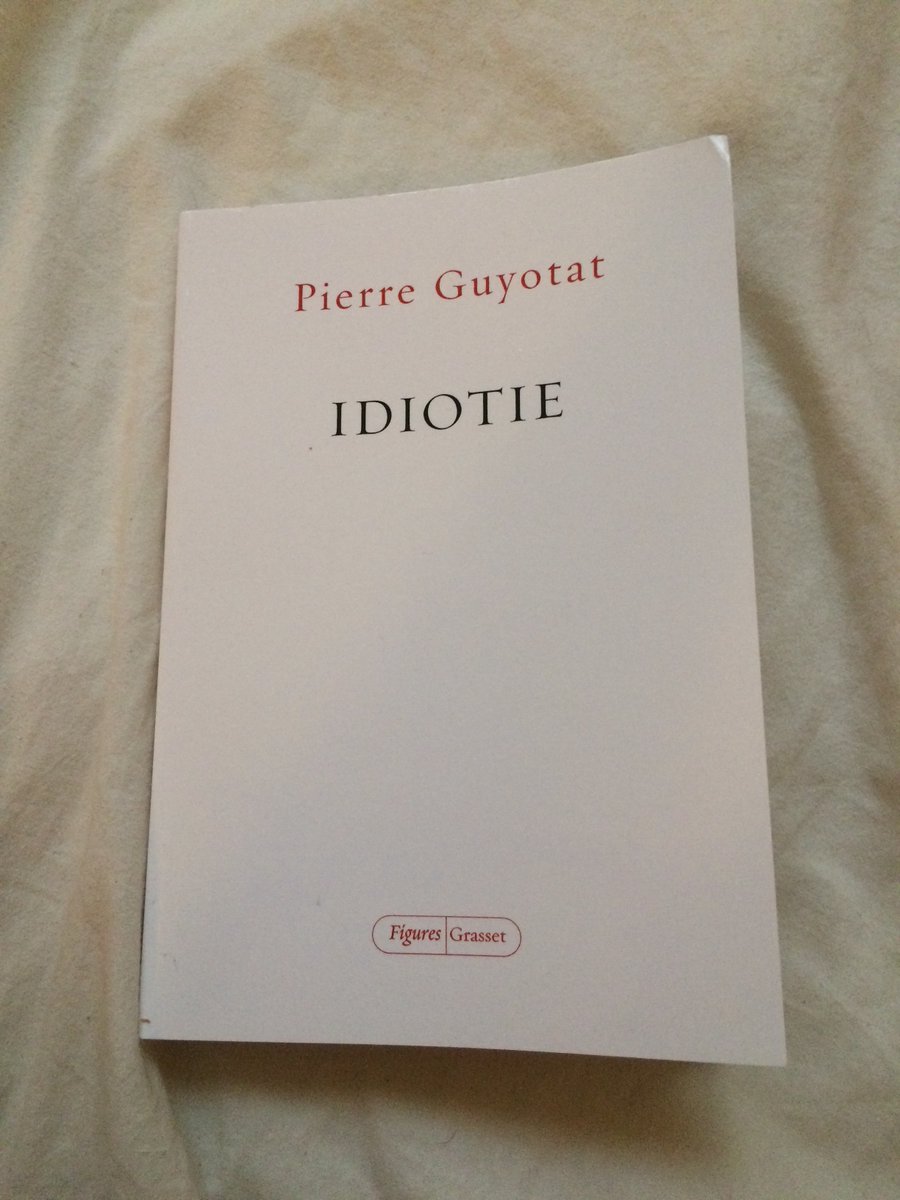 |
|
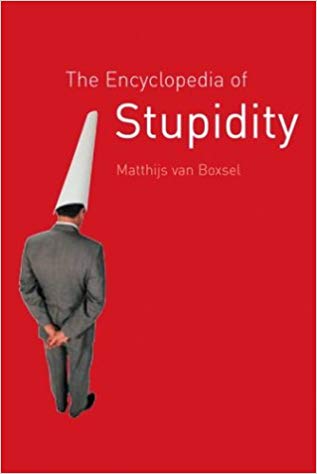 |
 |
Bulgaria Says French Thinker Was a Secret Agent. She Calls It a ‘Barefaced Lie.’
What Happens to #MeToo When a Feminist Is the Accused?
An N.Y.U. Sexual- Harassment Case Has Spurred a Necessary Conversation About #MeToo
Richard Burt and Jeffrey Wallen, "Knowing Better: Sex, Cultural Criticism, and the Pedagogical Imperative in the 1990s," Diacritics , "Texts / Contexts," Spring 1999, 29 (1): 72-91.
The History, Uses, and Abuses of Title IX AAUP
Avital_Ronell_The_Telephone_Book_Technology_Schizophrenia_Electric_Speech
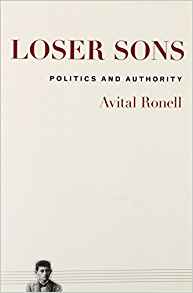
Avital Ronell, On the Misery of Theory without Poetry: Heidegger's Reading of Hölderlin's "Andenken"
PMLA, Vol. 120, No. 1, Special Topic: On Poetry (Jan., 2005), pp. 16-32
Walter Benjamin, "Privileged Thinking"
Paul de Man, "The Concept of Irony," in Aesthetic Ideology
Executive Order: Images of 1970s Corporate America
The Loser as Learned Auto-Didact
Recommended Viewing:
Changing the Paradigm 2015 Developmental Trauma Panel | Dr. Bessel van der Kolk
Idiocracy (dir. Mike Judge, 2006)
The King of Comedy (dir. Martin Scorcese, 1982)
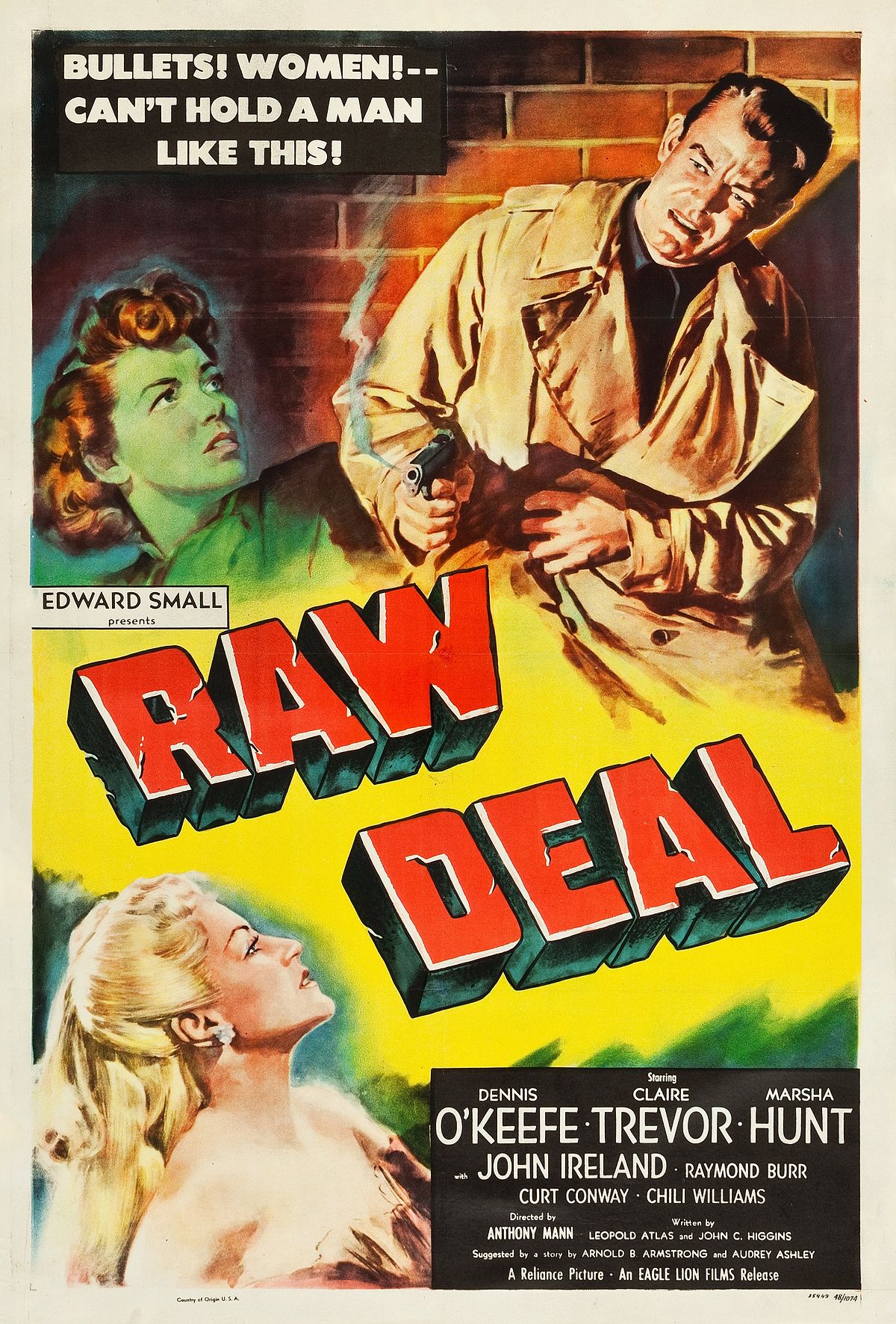
Due September 3: (You Know the Drill.) One discussion question, numbered one, on Walter Benjamin, "Unpacking My Library" and two BIG WORDS, and the same on Walter Benjamin, "The Destructive Character". Put your name at the top of the document. Just Your Name. Nothing else. Nothing. Else. Email all work to me at [email protected]
September 4:
Required Reading:
Walter Benjamin, "Unpacking My Library"
Walter Benjamin, "The Destructive Character"
Recommended Reading (the book Benjamin decides not to bid on but finds later in the secondhand section of the bookstore and buys it):
Ritter, Johann Wilhelm: Fragmente aus dem Nachlasse eines jungen Physikers, ein Taschenbuch für Freunde der Natur, Heidelberg, (1810)

Due September 5: (You Know the Drill.) Two discussion questions, numbered one and two, and three BIG WORDS, on Georg Christoph Lichtenberg, The Waste Books, pp. vii-15. Put your name at the top left of the document. Email all work to me at [email protected]
September 6:
Required Reading:
Georg Christoph Lichtenberg, The Waste Books, pp. vii-15 and the two captures below
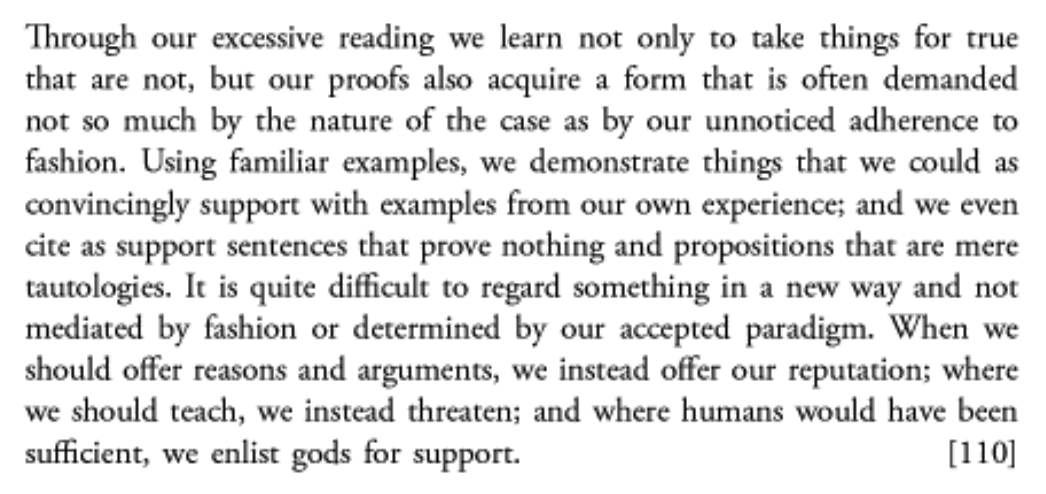

Recommended Reading:
Kirk Wetters, Chapter Four "Lichtenberg's Opinion System (Meinung-System)" in The Opinion System: Impasses of the Public Sphere from Hobbes to Habermas (2008)
Due September 10: (You Know the Drill.) Two discussion questions, numbered one and two, and three BIG WORDS, on Thomas Bernhard's The Loser, pp. 3-76. Put your name at the top left of the document. Email all work to me at [email protected]
DQs are always due by 5:00 p.m. the day before class.
J.S.Bach "The Goldberg Variations" [ Glenn Gould ] (1955) / Steinway grand pianos / J.S. Bach, The Art of the Fugue; W.K. Wimsatt, The Verbal Icon: Studies in the Meaning of Poetry (1954) "When Is Variation Elegant?" / Vladimir Horowitz
September 11: Loser stream of consciousness raising
Required Reading:
Thomas Bernhard, The Loser, pp. 3-97

Recommended Reading:
Edouard Levé, Suicide and Auto-Portrait
John T. Irwin, The Poetry of Weldon Kees: Vanishing as Presence
"The Disappearing Poet
What Ever Happened to Weldon Kees?
Due September 12: (You Know the Drill.)
Two discussion questions, numbered one and two, and three BIG WORDS, on Thomas Bernhard's The Loser, pp. 98-193. Put your name at the top left of the document. Email all work to me at [email protected]
September 13:Loser stream of consciousness raising
Required Reading:
Thomas Bernhard, The Loser, pp. 98-193

Recommended Reading:
Walter Benjamin, "The Destructive Character"
Judith Butler Refuses Award at Berlin Pride Citing Racism
Her speech
Thomas Bernhard, selection from Wittgenstein's Nephew, pp. 65-72
Editing:
To H
Thy Friendship oft has made my heart to ake
Do be my Enemy for Friendships sake

The Literary and Cultural Rhetoric of Victimhood: Western Europe, 1970-2005 by Fatima Naqvi
"--If this text is incomprehensible to anyone and grates on their ears, then the blame as I see it does not necessarily lie with me. It is clear enough, assuming as I assume one has read my earlier writings and done so without sparing the considerable effort; these are in fact not easily accessible. For instance as concerns my Zarathrustra, I will regard no one as its connoisseur who at some time was not deeply wounded and at some time not deeply delighted by its every word: for only then may he enjoy the privilege of reverent participation in the halcyon element out of which it was born, in its sunny brilliance, distance, health, breadth and curiosity. In other cases the aphoristic form presents a difficulty: this is based on the fact that today this form is not taken seriously enough. An aphorism that is properly stamped and poured is not yet "deciphered" just because someone has read it through; on the contrary, its interpretation must begin now, which requires an art of interpretation. In the third treatise of this book I have offered a sample of what I call "interpretation" in such a case:--this treatise is preceded by an aphorism, and the treatise itself is a commentary. Of course one thing above all is necessary in order to practice reading as an art to this extent, a skill that today has been unlearned best of all--which is why more time must pass for my writings to be "readable"--something for which it is almost necessary to be a cow and in any case not a "modern man": rumination . . .
Sils maria,
UPPER ENGADINE,IN JULY 1887.
Friedrich Nietzsche, The Genealogy of Morals
Due September 17: (You Know the Drill.) Two discussion questions on Friedrich Nietzsche, Ecce Homo: How One Becomes What One Is (Oxford World's CLassics Edition), pp. 3-76, up to the section "Beyond Good and Evil," and three BIG WORDS, numbered one, two, and three. Put your name at the top left of the document. Email all work to me at [email protected] I will no longer post this info below. DQs are always due by 5:00 p.m. the day before class.
September 18:
Required Reading:
Friedrich Nietzsche, Ecce Homo: How One Becomes What One Is, pp. 3-76 (read up to the section "Beyond Good and Evil") .
You may also read the Cambridge edition and a different translation, linked here.
Here, fyi, is a link to a digitized 1911 edition with yet another translation.
Recommended Readings (Not Required):
Sarah Kofman and Duncan Large, "Explosion I: Of Nietzsche's Ecce Homo"
Diacritics, Vol. 24, No. 4, Special Section: On the Work of Avital Ronell (Winter, 1994), pp. 50-70
Sarah Kofman and Madeleine Dobie, "The Psychologist of the Eternal Feminine (Why I Write Such Good Books, 5)"
Yale French Studies, No. 87, Another Look, Another Woman: Retranslations of French Feminism (1995), pp. 173-189
Due September 19: Two discussion questions on Friedrich Nietzsche, Ecce Homo: How One Becomes What One Is, pp. 77-97, starting with the section "Beyond Good and Evil" to the end, numbered one and two and three BIG WORDS, numbered one, two, and three. Put your name at the top of the document. Email all work to me at [email protected] I will no longer post this info below.(You Know the Drill. I will no longer post due dates for DQs on the schedule below.)
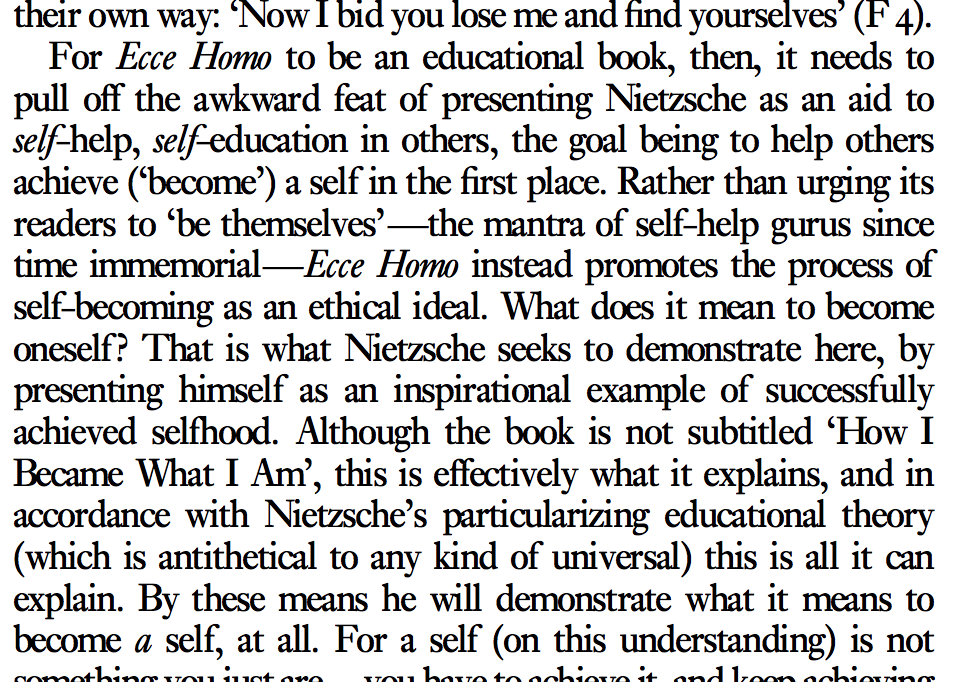
Recommended Rereading:
Walter Benjamin, "The Destructive Character"
September 20: In the R/Age of the Loser
Required Reading: Friedrich Nietzsche, Ecce Homo: How One Becomes What One Is, pp. 77-97 (starting with the section "Beyond Good and Evil" to the end)
You may also read the Cambridge edition and a different translation, linked here.
Here, fyi, is a link to a digitized 1911 edition with yet another translation.
- Have I been understood? - Dionysus versus the crucified . . .
Have I been understood? . . . The self-overcoming of morality from out of truthfulness, the self-overcoming of moralists into their opposite - into me - that is what the name Zarathustra means coming from my mouth.
I am by far the most terrible human being who has ever existed; this does not mean that I will not be the most charitable. I know the joy of destruction to a degree proportionate to my strength for destruction, - In both cases I obey my Dionysian nature, which does not know how to separate doing no from saying yes. I am the first immoralist: which makes me the destroyer par excellence.
Recommended Readings:
Richard Wagner, My Life
FRIEDRICH NIETZSCHE, Thus Spoke Zarathustra
FRIEDRICH NIETZSCHE, Genealogy of Morals,Third Treatise (It begins with an aphorism.)
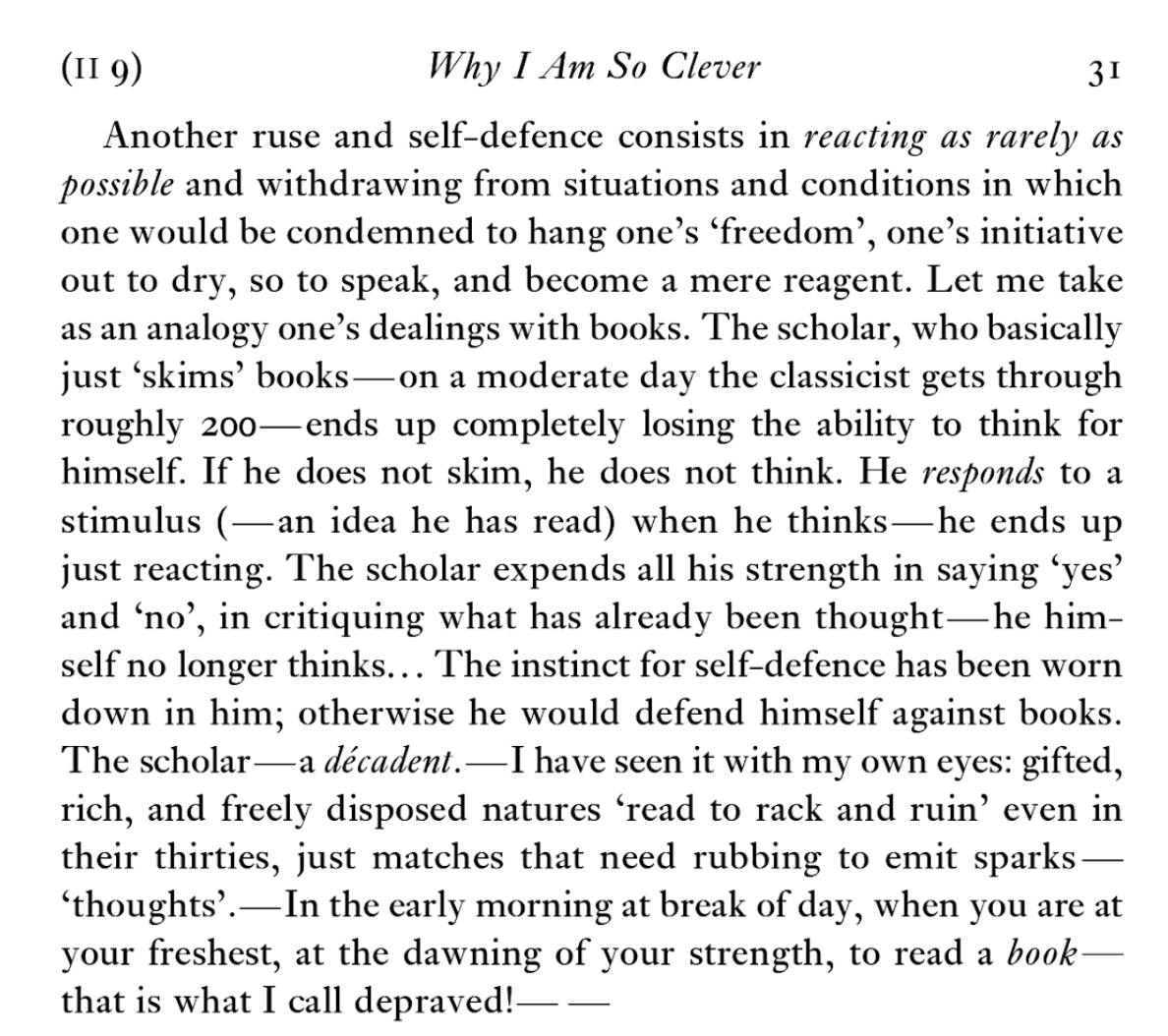
First Paper (500 words, not including quotations) DUE Saturday September 29 by 11:59 p.m. You may write your paper on any text we have so far. I encourage you to make up your own paper topic. If you need any help, just email or talk to me in class and we can schedule a time to talk. Close reading and writing as you read are exploratory and experimental. That's what's cool about close reading. You can have a very good idea of what you want to pay attention to, but you can't really program what will be read or how it will be read exactly in advance. And when you do get "a read" on the book, you'll know it is provisional, that you'll only know the book as well as do a good friend (or, dare I say, a lover). There are tacit rules, but there is no referee, just a reader. The idea is to be less inhibited about your own writing when you read, as in, “you can say that? And say it that way? Really?!” Yes, you can. And more. Your assignment is to do a close reading of an assigned text. Focus on a passage or just a sentence and discuss it in detail in order to illuminate something more general about the text you're writing about. That passage is your paper topic. Cite the text to make your points. The text is your evidence. If you don't know what a close reading is and have never done one before, be sure to go to http://writingcenter.fas.harvard.edu/pages/how-do-close-reading. You may also ask me for clarification. You must also know how to write a research paper, or analytical essay. You will need a title for your paper and a thesis, an argument that you can state in one sentence. Your thesis should go at the end of your first paragraph. You may figure out your title before you write your paper, but usually, you only figure out your title after you figure out your thesis. And you figure out your thesis by writing your paper. What you think is your conclusion often needs to be moved up from the end of the essay to the front. Then you are ready to make your final revisions and add a new concluding paragraph. You may also have come up with a new title in the course of writing the paper. And then you are ready to proofread your paper. And then you will have finished writing your paper. Congratulations! :) Email your paper (as an attachment) to me at [email protected]. Put your name in the subject title or header of your title. Remember to put your name in your paper.
First Paper (500 words, not including quotations) DUE Saturday September 29 by 11:59 p.m. You may write your paper on any text we have so far. I encourage you to make up your own paper topic. If you need any help, just email or talk to me in class and we can schedule a time to talk.
September 25: TIMELY or UNTIMELY? (Bernhard's "perfect moment" and "ideal moment"; FRIEDRICH NIETZSCHE, Untimely Meditations): The Loser as the Great Hater, the Destructive Character, at War against War, the hermetic Journalist Anti-Journalist
Required Readings: You may either purchase a copy of The Kraus Project: Essays by Karl Kraus in print (it may be on kindle too) or read all assigned selections from it for free online here: The Kraus Project
1.“Heine and the Consequences,” The Kraus Project: Essays by Karl Kraus, pp. 6-80

Recommended:
Marjorie Perloff, "On Jonathan Franzen’s The Kraus Project"
Scott Horton, "Heine and the Battle of the Gods," September 29, 2007
Heinrich Heine, "The Gods of Greece"
Heinrich Heine, Die_Götter_Griechenlands
Friedrich von Schiller, "Die Götter Griechenlands"
JOSEPH EPSTEIN, "Wit, Exile, Jew, Convert, Genius: The life and art of Heinrich Heine," MAY 14, 2018
Die Fackel [The Torch]
Edward Timm, "Die Fackel," The TLS 2003
Adam Kirsch, "The Torch of Karl Kraus," NYR, OCTOBER 23, 2008 ISSUE
Leo A. Lensing Karl Kraus and Walter Benjamin (Reponse to NYR essay above)
Karl Kraus, "Feuilleton und Bühne" in German
Heinrich von Treitschke, "Das souveräne Feuilleton." in Deutsche Geschichte im neunzehnten Jahrhundert. Bd. 4: Bis zum Tode König Friedrich Wilhelms III. Leipzig, 1889, pp. 419-423
Theodor W. Adorno, "On an Imaginary Feuilleton"
Theodor W. Adorno, "Morality and Criminality"
Karl Kraus, "Nestroy and Posterity"
Erich Heller, "Karl Kraus: Satirist in the Modern World" in The Disinherited Mind (1952)
Erich Heller, "Karl Kraus: The Last Days of Mankind" in The Disinherited Mind (rev. 19??)
Erich Heller, "Dark Laughter" NYRB MAY 3, 1973
"On Karl Kraus" Walter Kaufmann, reply by Erich Heller NYRB AUGUST 9, 1973
First Paper (500 words, not including quotations) DUE Saturday September 29 by 11:59 p.m. You may write your paper on any text we have so far. I encourage you to make up your own paper topic. If you need any help, just email or talk to me in class and we can schedule a time to talk. Click here for the assignment. Email all work to me at [email protected]
September 27: What is Criticism? (and False Criticism?) What Is "Critical Thinking"? A Critical Reading? What Is Literary Criticism? What Is Hate Speech? Can Hatred Be a Good Thing? What is the relation between hatred and justice?
Required Reading: “Heine and the Consequences,” The Kraus Project: Essays by Karl Kraus, pp. 81-133

Recommended Readings:
Karl Kraus, "In These Great Times"
Fatima Naqvi, The Literary and Cultural Rhetoric of Victimhood
Walter Benjamin, "False Criticism"
"Afterword to Heine and the Consequences," in The Kraus Project: Essays by Karl Kraus, pp. 264-93.
Karl Kraus, "Against Heine"

Selections from "the Grumbler" and "Optimist" characters and "The Last Night" in Karl Kraus's The Last Days of Mankind, pp. 42-43; 128-54; 567-60.
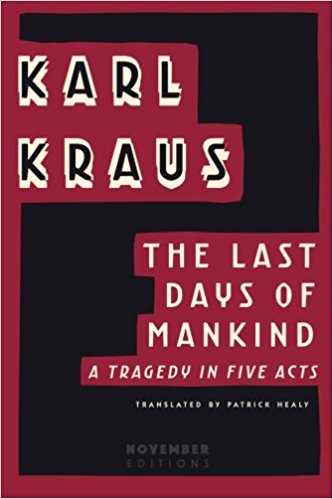
TRANSLATING KARL KRAUS & THE LAST DAYS OF MANKIND
Marjorie Perloff, "Avant-Garde in a Different Key: Karl Kraus’s The Last Days of Mankind" Critical Inquiry
Karl Kraus, diplomatic transcriptions in German of Die Fackel, including "Glossen," or glosses (Writing in 2013, Franzen compares Kraus's glosses to modern blogs, now already obsolete)
Robert Musil, "Glosses," in Thought Flights
DIE FACKEL ONLINE (in German)
Walter Benjamin, Kraus Reads Offenbach
Failure (Whitechapel: Documents of Contemporary Art)
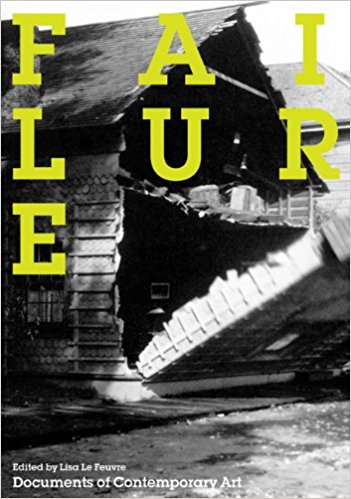
October 2:
Walter Benjamin, "Karl Kraus" (note the division of the essays into three sections, with thre titles--and watch for the mention of Shakespeare's Timon of Athens; the oft-mentioned part about quotation and cannibalism is on page 450.)
This essay is difficult but deeply rewarding. Leave yourself time to read it very carefully.
Recommended Readings: (lots of them, for possible future reference).
Sigrid Weigel, "Eros and LANGUAGE: Benjamin's Kraus Essay" Benjamin's Ghosts ed. Gerard Richter
Karl von Gerok (1815–1890) "The Steeds of Gravelotte"
Karl Kraus, "Zum ewigen Frieden" von Immanuel Kant! Christoph_Heinrich_Hölty
Walter Benjamin, "Karl Kraus Fragment"
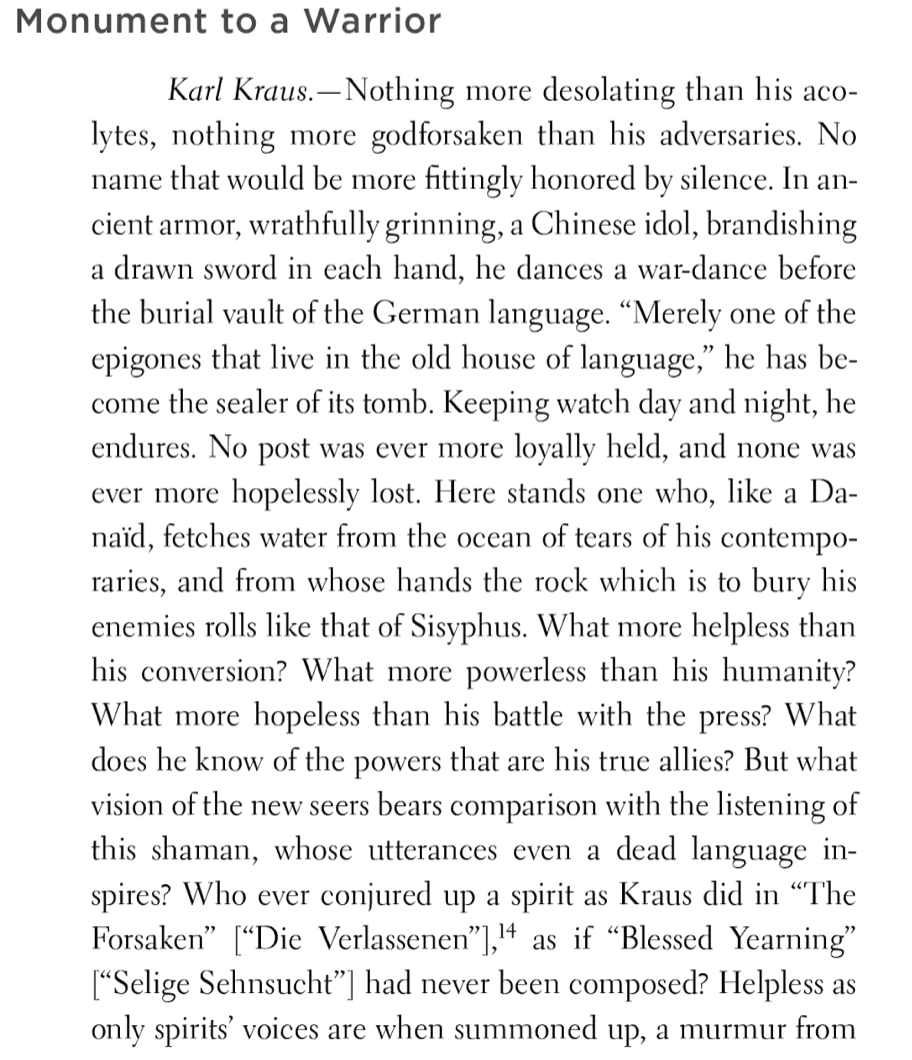
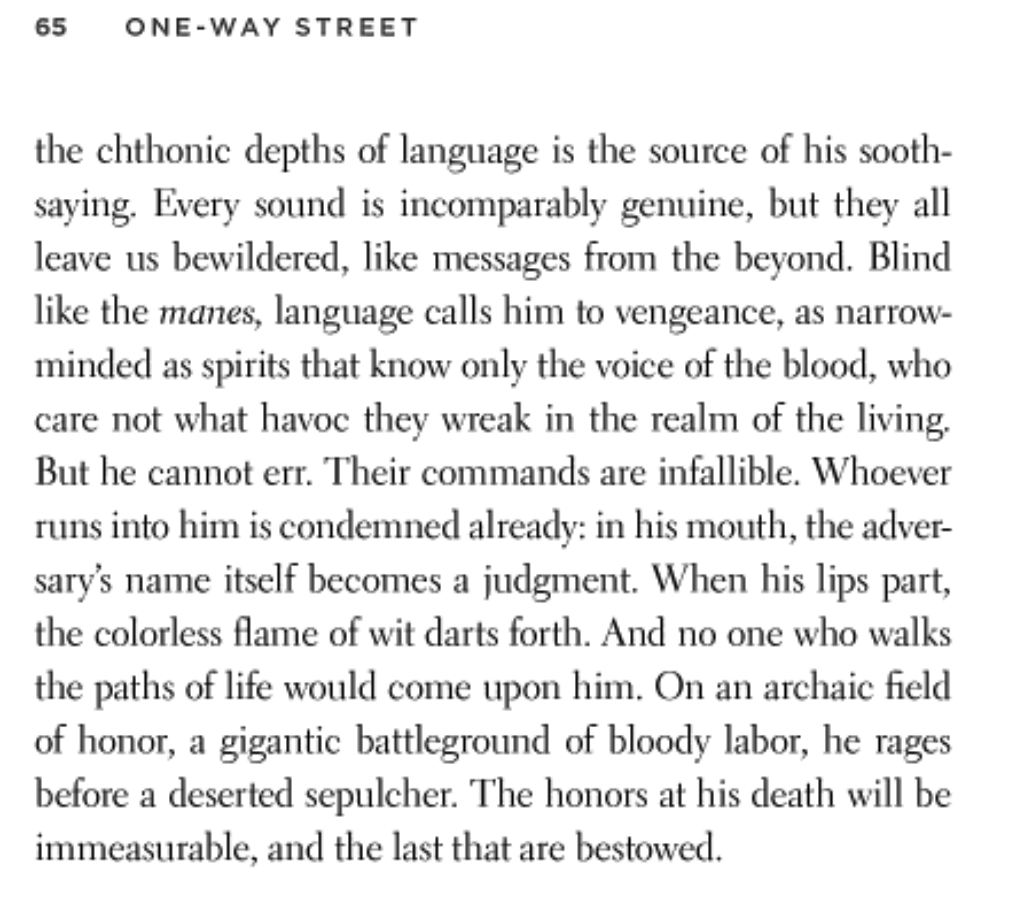

--Walter Benjamin, Einbahnstraße (One-Way Street).
Walter Benjamin, One-Way Street and Other Writings
"What is the source of this dynamism in figures that so easily tend to lapse into the poses struck by their own monuments? The author does not confine himself to what has actually happened; he even uncovers what didn't hap pen. This does not mean that he invents it-say, as a vision. Rather, he simply and clearly discovers it-namely, as something that in truth did not actually happen. His picture of the past emerges against the background of what might have been, and it is against this background that what actually happened casts its shadow. It is in keeping with this that nothing aims at effects and highlights, and that the offbeat and the obscure detail seem to have been most consummately shaped. . . .
This author collects lived hours the way another might collect antiques. Not that he talks about them; you see them because of the knowing, exploratory, reverent, involved, testing, inquiring way he turns each around in his hand, examining it from every side, conferring on it not the false life of empathy but the true life of tradition. Closely related to this is the author's own bent: that of a collector. For whereas with the systematic thinker the positive and negative are always cleanly separated, worlds apart from each other, here preferences and an tipathies lie close together. The author picks out a single poem from a cycle, a single moment in an existence, and he makes very sharp distinctions between people and ideas that seem very closely related."
--Walter Benjamin, "Against a Masterpiece"
Paul Reitter, The Anti-Journalist: Karl Kraus and Jewish Self-Fashioning in Fin-de-Siècle Vienna
Karl Kraus, "Die Verlassenen," Worte in Versen I.-IX.  Worte in Versen V.
Worte in Versen V.
Selige Sehnsucht ist der Titel eines Gedichts von Johann Wolfgang von Goethe
Facing page German-English translation
“Between Two Strains of Life: Final Word,” and "Let No One Ask," The Kraus Project: Essays by Karl Kraus, pp. 295-315.
Walter Benjamin essays in pdfs
On Being Nice, or Being Wilfully Delusional (because what else are you gonna say, except, "I know, I know, but still . . . ?): Revolutionize the University to Prepare Students for a World in Flux. New York: Basic Books, 2017. 336 pp.
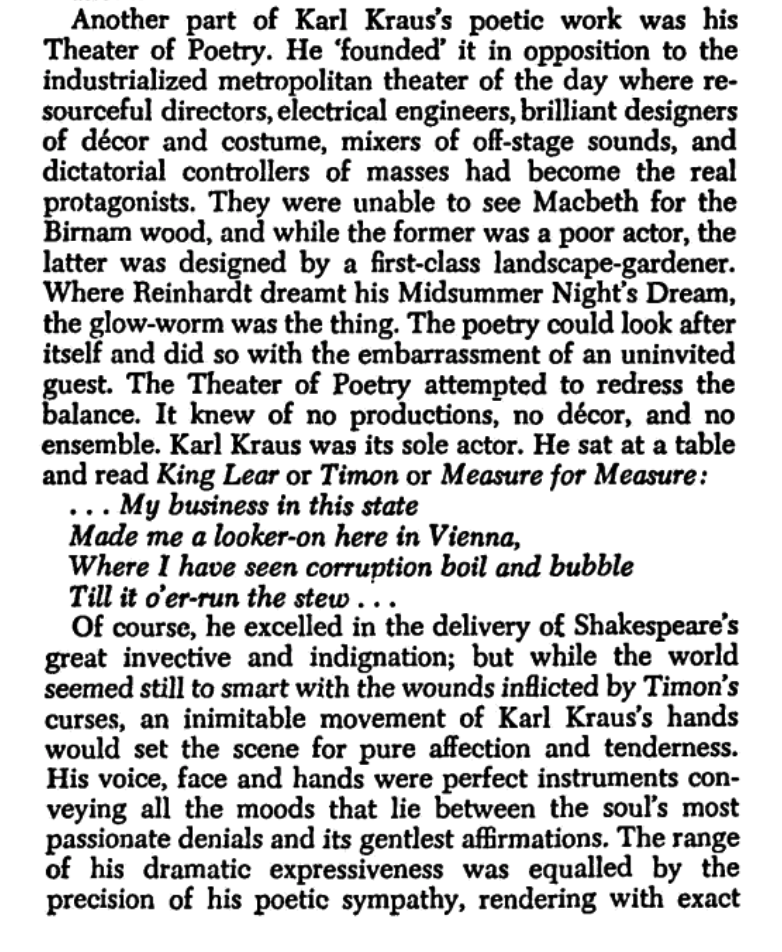
--Erich Heller, "Karl Kraus: Satirist in the Modern World" in The Disinherited Mind (1952)
October 4: Epitaph(s) for a Loser
Required Readings (Two):
1. You may use any scholarly edition of Timon of Athens and read the two famous rants by Timon in Act IV, scenes 1, line 1 and following and 3, line 1 and following, and all of Act V. The play is online, without footnotes or annotations, here.
2. You have a choice here. You may read either the introduction and discursive footnotes linked here to the Oxford edition shown below or read the introduction and discursive footnotes linked here to Timon of Athens: Third Series (Arden Shakespeare) shown below. In class, we can compare notes. The editors disagree.
1. Just one DQ on Timon of Athens and one DQ on either the two linked readings and four BIG WORDS.

More Recommended Reading:
Kierkegaard on Journalism and Journalists
"The NEWSPAPER, is the second-hand in the clock of history; and it is not only made of baser metal than those which point to the minute and the hour, but it seldom goes right.
The so-called leading article is the chorus to the drama of passing events.
Exaggeration of every kind is as essential to journalism as it is to the dramatic art; for the object of journalism is to make events go as far as possible. Thus it is that all journalists are, in the very nature of their calling, alarmists; and this is their way of giving interest to what they write. Herein they are like little dogs; if anything stirs, they immediately set up a shrill bark.
Therefore, let us carefully regulate the attention to be paid to this trumpet of danger, so that it may not disturb our digestion. Let us recognize that a newspaper is at best but a magnifying-glass, and very often merely a shadow on the wall."
Karl Kraus on Kierkegaard and journalism
Arthur Schopenhauer, "On Some Forms of Literature"



Søren Kierkegaard, The Present Age, A Literary Review

October 9: The Disembodied Loser
Required Reading:
Robert Montgomery Bird, Sheppard Lee,Written By Himself Vol. 1 "Originally printed in two volumes, this edition combines them into one. (The first volume of the original edition ended after chapter 3 in book IV.)" --Christopher Looby
"Sheppard Lee is an identity thief. . . . Poe would have preferred an essentially constant narrative focus, a consciousness continually and con-sistently present to itself (and to Bird’s readers), from whose stable perspective the wide variety of social circumstances and events depicted in the novel would be perceived—circum-stances and events that, it might be, would slowly have an im- pact upon that consciousness. Such a protagonist might look different (because he changed bodies), and therefore pass as someone else in the eyes of others, but would retain a secure sense of self-identity nevertheless. Bird, however, dramatized another, quite different possibility: that identity would be nearly lost from one reincarnation to the next.
This seems, finally, to be Bird’s rather pointed agenda: to put his readers on notice that, in these fraught times of national struggle over slavery, and in the face of intractable political dilemmas, he could give no affordance for moralistic complacency of any sort." Christopher Looby, "Introduction," Sheppard Lee Written by Himself
Recommended Readings:
Walter Benjamin, "Light from Obscurantists"
Robert Montgomery Bird, "My Friends in the Madhouse," Peter Pilgrim; Or, A Rambler's Recollections
James Kirke Paulding, Westward Ho!: A Tale
Stephen Burroughs, Memoirs of the Notorious Stephen Burroughs of New Hampshire (1811 edition; 1798 edition)
Ben Franklin, Autobiography of Benjamin Franklin
Edgar Allan Poe, "The Business Man"
C. B. Macpherson, The Political Theory Possessive Individualism: Hobbes to Locke JC153 .M2 in Smathers Library
Robert Montgomery Bird, Sheppard Lee, Written By Himself Vol. 2
For the source of the sometimes satirical chapter titles of Bird's novel, see the chapter titles in Henry Fielding's novels and in Miguel de Cervantes's stories and novel, Don Quixote.
The Spanish picarro is kind of a prototype of the loser. Don Quixote is a loser.
OCTOBER 11:
Requried Reading:
Robert Montgomery Bird, Sheppard Lee, Written By Himself Vol. 2 Chapter 4 Book 4 to the end.
Recommended, or Why Self-Help can be a nightmare when presented as a spirtual guide.
SLAVES TO LOVE:
Alexandre Kojeve, "Chapter 2 Summary of the First Six Chapters of the Phenomenology of Spirit" in Introduction to the Reading of Hegel
Why James Baldwin's 'A Talk To Teachers' Remains Relevant 54 Years Later
The-desegregation-and-resegregation-of-charlottes-schools
Recommended Viewing:

October 16:
Required Reading: "Er lasst sich nicht lesen"
Edgar Allan Poe, "The Man of the Crowd"(online) (Or pdf here)
Recommended:
"Poe's famous tale "The Man of the Crowd" is something like an X-ray of a detective story. It does away with all the drapery that a crime represents. Only the armature remains: the pursuer, the crowd, and an unknown man who manages to walk through London in such a way that he always remains in the middle of the crowd. This unknown man is the flaneur. That is how Baudelaire understood him when, in his essay on Guys, he called the flaneur "l'homme des foules" [the man of the crowd]. But Poe's description of this figure is devoid of the connivance which Baudelaire's notion in- cluded. To Poe the flaneur was, above all, someone who does not feel comfortable in his own company. This is why he seeks out the crowd; the reason he hides in it is probably close at hand. Poe purposely blurs the difference between the asocial person and the flaneur. The harder a man is to find, the more suspicious he becomes. Refraining from a prolonged pursuit, the nar- rator quietly sums up his insight as follows: "'This old man is the embodiment and the spirit of crime,' I said to myself. 'He refuses to be alone. He is the man of the crowd."'
--Walter Benjamin on Poe, Charles Baudelaire, and the crowd
Robert Ray, Snapshots: The Beginnings of Photography How a Film Theory Got Lost and Other Mysteries in Cultural Studies
Nathalie Preiss, Les Physiologies en France au XIXe siècle. Étude historique littéraire et stylistique et De la poire au parapluie. Physiologies politiques
Romantisme Année 2002 117 pp. 118-120
E.T.A. Hoffmann, "My Cousin's Corner Window"
Robert Louis Stevenson, "A Plea for Gas Lamps"
Walter Benjamin, "The Flâneur" in The Paris of the Second Empire in Baudelaire (1938)
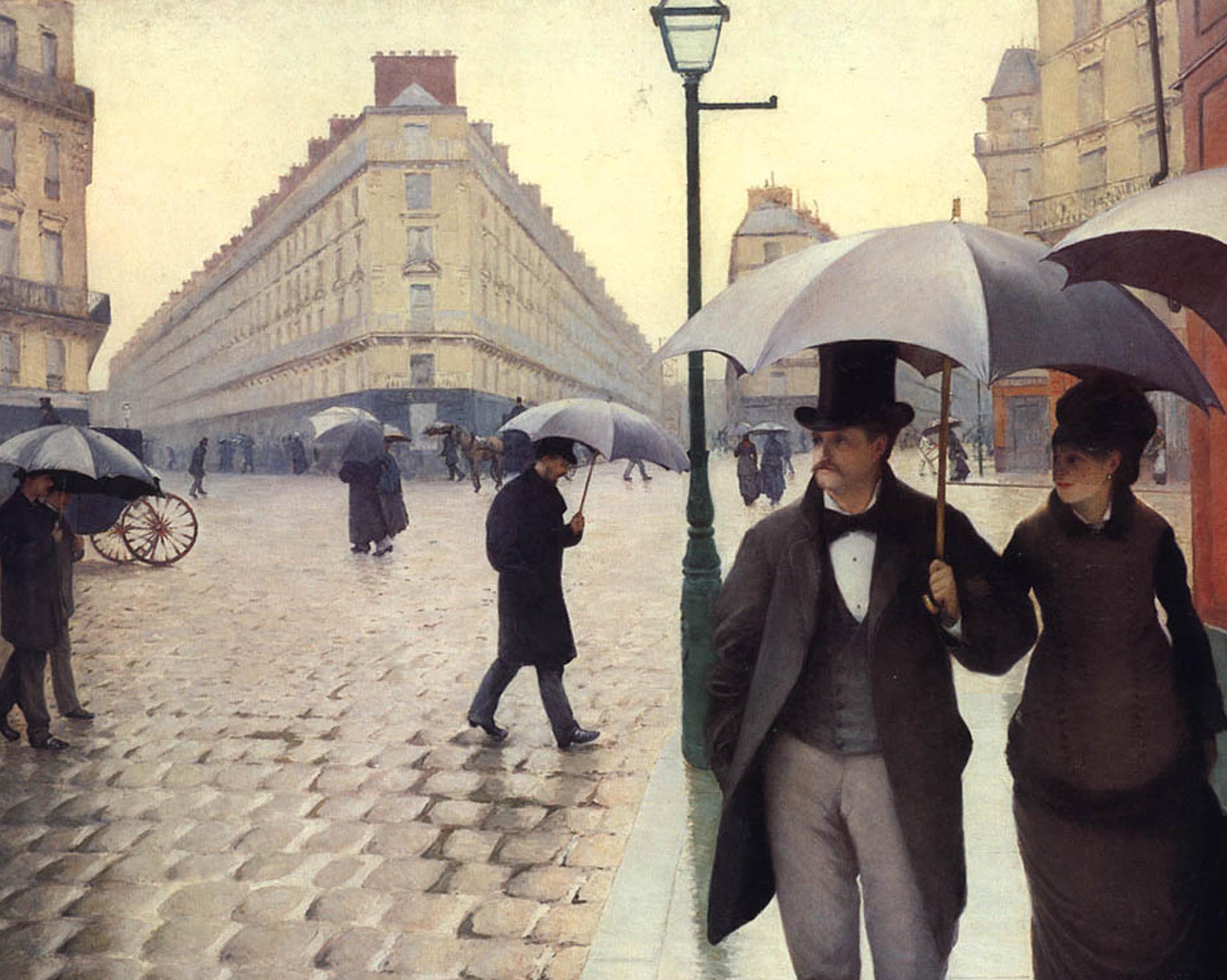
Gustave Caillebotte, "Paris Street, Rainy Day"
Walter Benjamin, "Return of the Flâneur" (a review of Franz Hessel's book, Walking in Berlin)




October 18: The Disembodied Loser
Required Reading:
William Faulkner, Barn Burning
Recommended Reading:
William Faulkner, “Letter to a Northern Editor” March 5, 1956
M. E. Bradford, "Faulkner, James Baldwin, and the South" The Georgia Review Vol. 20, No. 4 (WINTER - 1966), pp. 431-443
Louis Daniel Brodsky, "Faulkner and the Racial Crisis, 1956" Southern Review, Autumn 1988
IRVING HOWE, "Nobody Knows My Name," July 2, 1961
Alexandre Kojeve, "Chapter 2 Summary of the First Six Chapters of the Phenomenology of Spirit" in Introduction to the Reading of Hegel
Why James Baldwin's 'A Talk To Teachers' Remains Relevant 54 Years Later
The-desegregation-and-resegregation-of-charlottes-schools


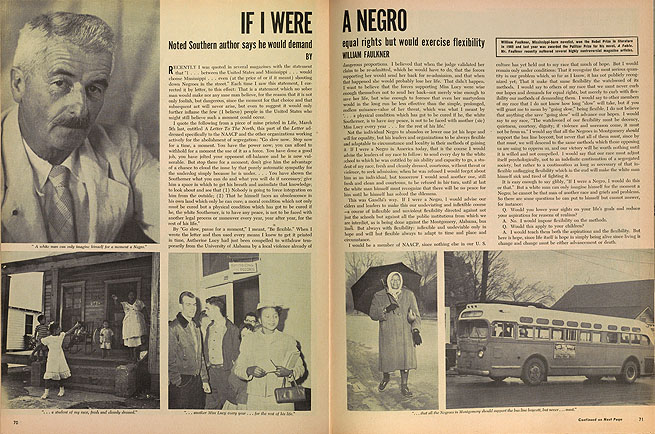
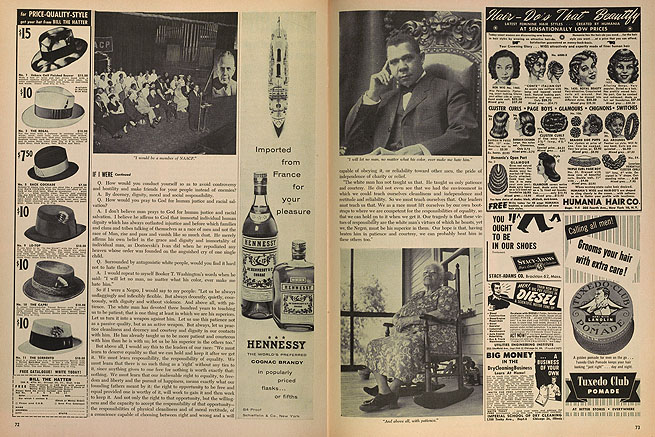
James Baldwin, "Letter from a Region in My Mind." New Yorker, November 17, 1962 Issue
October 23:
I will now introduce a new moment of interruption, this time irregularly and of unpreditable character. I call it:" Which one is the best?" I read you two passages from two books I've been reading recently. Don't worry if you lose. I'll explain very clearly why I'm right. :)
Required Reading:
Herman Melville, Bartleby the Scrivener: A Tale of Wall Street (Read the entire story.)
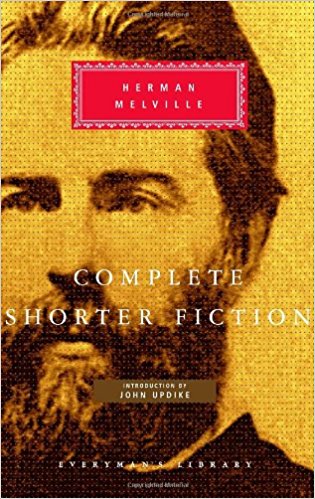
Recommended Reading:
HOW TO MAKE EVERYONE IN YOUR VICINITY SECRETLY FEAR AND DESPISE YOU
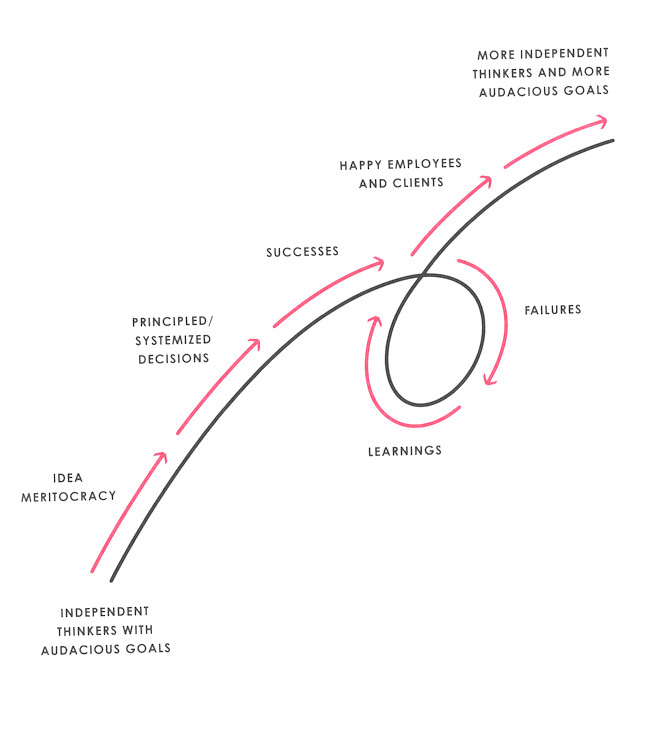
"This one means “learn from your failures.” Remember with this type of thing: It’s not always that it’s meaningless (though it often is); it can also be an unnecessarily complicated way of stating the obvious. Or it can be half meaningless, half obvious. There are many variations."
How bosses are (literally) like dictators: Americans think they live in a democracy. But their workplaces are small tyrannies.Updated by Elizabeth Anderson Jul 17, 2017, 8:20am EDT
Warren, Samuel, The moral, social, and professional duties of attorneys and solicitors (1849)
By a Retired Merchant, "My Wife and the Market Street Phantom," Godey's Lady's Book , September 1870, 339-42.
Craig Saper, "Redaction"_October_2018
October 25:
Required:
Herman Melville, Bartleby the Scrivener: A Tale of Wall Street (Reread the story and turn in two more DQs adnd three more BIG WORDS by 5:00 p.m. Octobe 24.)

Recommended Viewing and Reading:
Gilles Deleuze, "Bartleby; or, The Formula," in Essays Critical and Clinical, pp. 68-90.
Office Space (dir. Mike Judge, 1999)
Sigmund Freud, "Creative Writers and Day-Dreaming (Der Dichter und das Phantasieren)" (1908)
The Book of Job (KJV)
"I am going to follow the same procedure, and so as to let the reader perceive all the more readily that I really think the fragment good, I shall print it once more in these pages:
The French Revolution, Fichte's philosophy, and Goethe's Meister are the greatest tendencies of the age. Whoever is offended by this juxtaposition, whoever cannot take any revolution seriously that isn't noisy and materialistic, hasn't yet achieved a lofty, broad perspective on the history of mankind. Even in our shabby histories of civilization, which usually resemble a collection ofvariants accompanied by a running commentary for which the original classical text has been lost; even there many a little book, almost unnoticed by the noisy rabble at the time, plays a greater role than anything they did.
I wrote this fragment with the most honourable intentions and almost without any irony at all."
--Friedrich Schlegel, "On Incomprehensibility"
October 30: Loser! Stupidity, Again
Required Reading:
Friedrich Schlegel, "On Incomprehensibility" or in this translation
Recommended Reading:
Editor's introduction and index to Schlegel's Literary Notebooks
Friedrich Schlegel / Friedrich Schlegel / Johann Gottlieb Fichte / Johann Wolfgang von Goethe
Friedrich Wilhelm Joseph Schelling / Athenaeum (German magazine)
Paul de Man, "The Concept of Irony," in Aesthetic Ideology
Avital Ronell, "The Uninterrogated Question of Stupidity." differences: A Journal of Feminist Cultural Studies.
8.2 (Summer 1996)
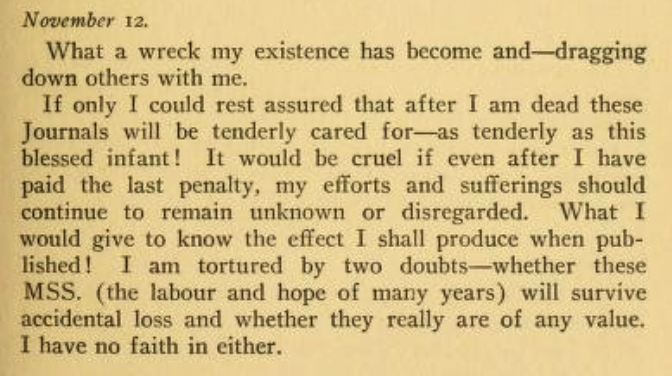
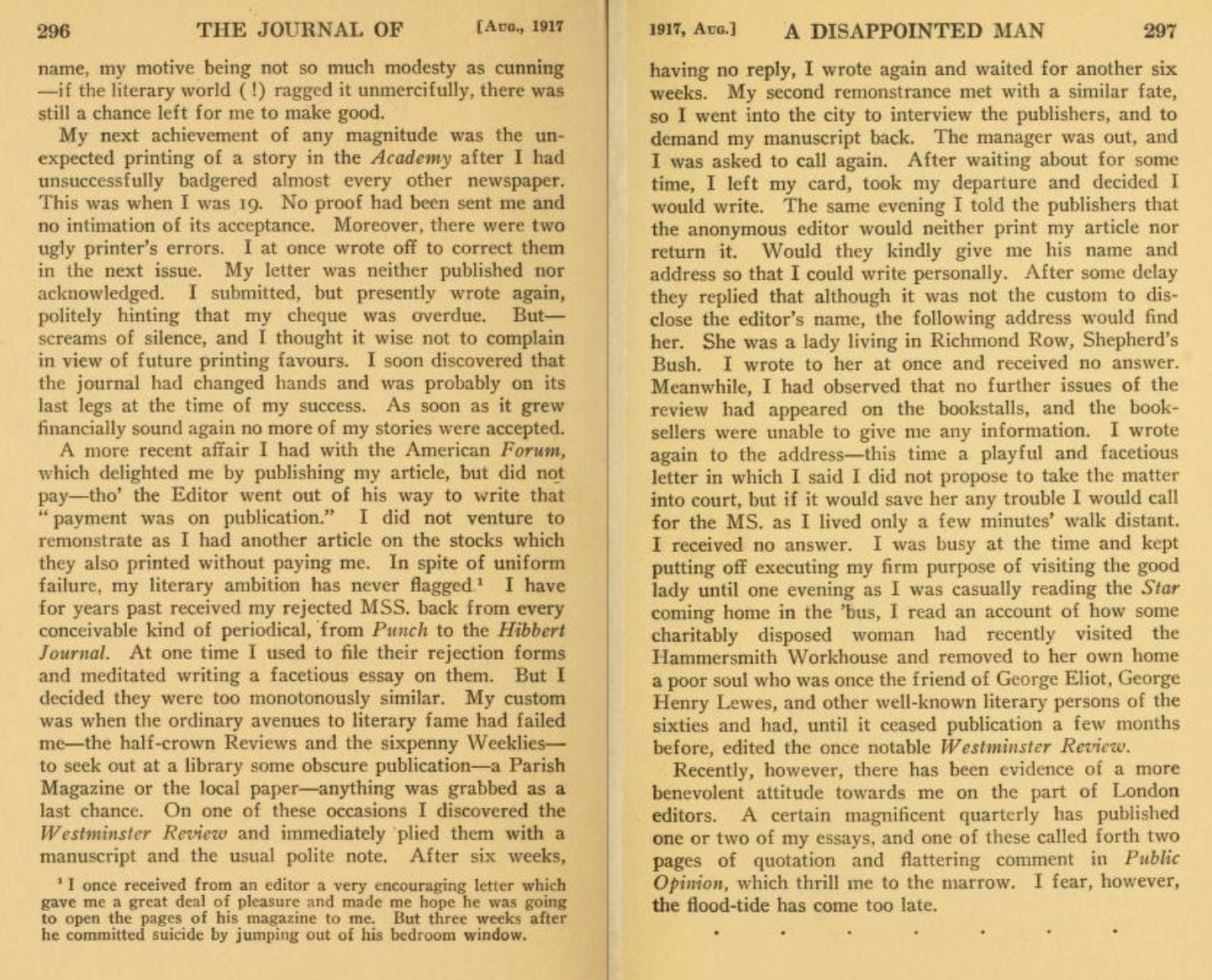
--W. N. P. Barbellion, The Journal of a Disappointed Man
And from among them, under the pressure of endless needs, have arisen women, powerful in their love who, even while they called out for the man had surpassed him, and outgrew him when he did not return, like Gapara Stampa or the Portuguese nun, both of whom did not cease until their agony swung round to become a bitter, icy splendor that could no longer be confined. We know about each of these women because there are letters that have been preserved as if by a miracle and books containing poems of reproach and lament, and portraits in a gallery that look at us with an expression that betokens tears, which the artists succeeded in catching because they didn't know what it was. But there have been countless more of them, such as those who have burnt their letters, and others who had no strength left to write them. Old women who had become hardened but had a precious core within them which they concealed. Women who have grown stout and shapeless from fatigue let themselves resemble their husbands, though inside them where love had been at work in the dark, all was different. Child-bearing women who never wanted to bear children and who eventually perished in their eighth delivery still had the actions and lightness of girls looking forward to love. And those who stayed with men who were violent or who were drunkards had found inwardly the means to keep at the greatest distance from them couldn’t help shining as if they were perpetually surrounded by saints. Who can say how many such women there were or who they were. It's as if they've gone on ahead and destroyed all the words that could help others understand.
Indistinct as they were I'd one day abandoned them secretly. Even one's childhood would still, as it were, need completing if one didn’t want to give it up as lost forever. And while I understood how I had lost it, I felt at the same time that I would never have anything else to put in its place. I spent a few hours every day in Dronningens Tvargade in the cramped rooms that looked insulted, as do all rented rooms where someone has died. I walked back and forth between the desk and the big white-tiled stove burning the Master of the Hunt's papers. I'd begun by throwing the correspondence, already in bundles, in the fire but the bundles were tied too tightly and simply charred at the edges. It was a tussle working them loose. Most of them had a strongly persuasive smell that forced its way into me as if it wanted to stir my memories. I didn't have any. Then some photographs, heavier than the others happened to slip out; these photographs took an unbelievably long time to burn.
--Rilke, The Notebooks of Malte Laurids Brigge
Georgia Albert, Understanding Irony: Three Essais on Friedrich Schlegel MLN, Vol. 108, No. 5, Comparative Literature (Dec., 1993), pp. 825-848
Hegel contra Schlegel; Kierkegaard contra de Man
November 1:
At this point in the semester, I am now going to introduce a new game we will play irregularly and unpredictably. This is the game: I show you two passages, each taken from two books I've been reading recently, and will have you read them in class. The passages I will show you are both good, so I expect not everyone in othe class will agree. Then you have to write down your answer. Then I will tell you the correct answer. Don't worry if you lose. I'll explain very carefully and concisely why the students who agree with me are correct. :)
Required Readings:
Arthur Schopenhauer, The Art Of Controversy
Recommended Reading:
Arthur Schopenhauer, "Chapter 2: On Logic and Dialectic," in Parerga and Paralipomena: Volume 2: Short Philosophical Essays (The Cambridge Edition of the Works of Schopenhauer) The Cambridge Edition of the Works of Schopenhauer
Arthur Schopenhauer, "On Noise," in Studies in Pessimism
The Art of Being Right: 38 Ways to Win an Argument
Plato, The Sophist
Kirk Wetters, "Lichtenberg's Opinions-System"
Theodor W. Adorno,"Opinion Research and Publicness (Meinungsforschung und Offentlichkeit)
Theodor W. Adorno, "Opinion Delusion Society"
Hans Robert Jauss, "Chapter One Literary History as a Challenge to Literary Theory" in Toward an Aesthetic of Reception (translation by Timothy Bahti)
Jacques Derrida, "CALL IT A DAY FOR DEMOCRACY''
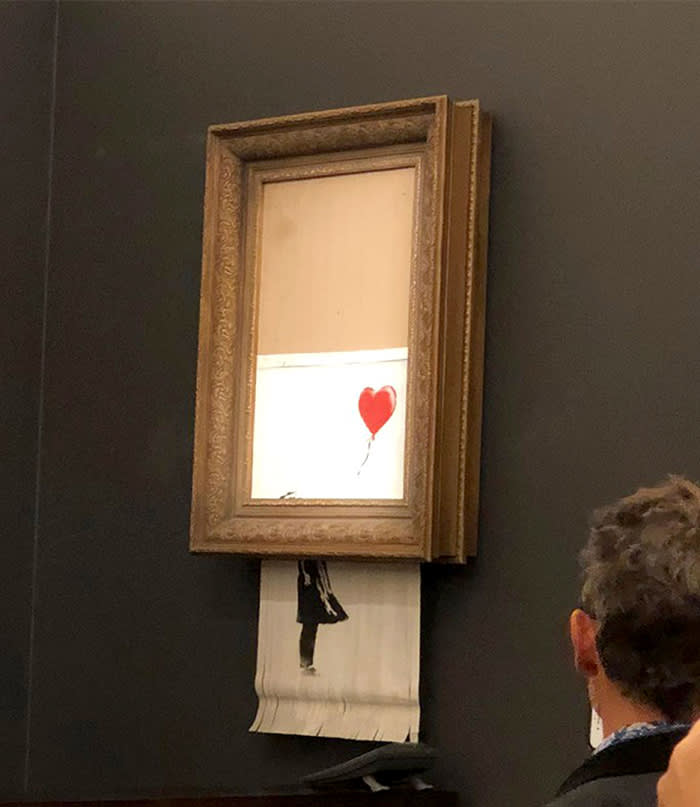
Banksy, trust and the art market — the inside story

Second Paper (500 words) DUE Sunday November 4 by 11:59 p.m. WHAT YOU NEED TO KNOW: Your assignment is to do a close reading of an assigned text. Focus on a passage or a scene and discuss it in detail. That passage or scene is your paper topic. Cite the text or film to make your points. Develop your thesis. The text or is your evidence. If you don't know what a close reading is and have never done one before, be sure to go to http://writingcenter.fas.harvard.edu/pages/how-do-close-reading. You may also ask me for clarification. You must also know how to write a research paper, or analytical essay. You will need a title for your paper and a thesis, an argument that you can state in one sentence. Your thesis should go at the end of your first paragraph. To make sure we share the same understanding of the assigned paper, please read http://users.clas.ufl.edu/burt/paper.html before you begin writing. You may figure out your title before you write your paper, but usually, you only figure out your title after you figure out your thesis. And you figure out your thesis by writing your paper. What you think is your conclusion often needs to be moved up from the end of the essay to the front. Then you are ready to make your final revisions and add a new concluding paragraph. You may also have come up with a new title in the course of writing the paper. And then you are ready to proofread your paper. And then you will have finished writing your paper. Congratulations! :)
Email your paper (as an attachment) to me at [email protected]. Put your name in the subject title or header of your title. Put your name in your paper.
Grading: I will meet with you in person to discuss your paper with you. PLEASE BE ADVISED: If you didn't do the asignment, a close reading, your grade is an automatic E. If didn't put your name on your paper, it's an automatic E. If you didn't have a proper title, it's an automatic E. If you didn't have a thesis, it's an automatic E. One third of your grade will be based on your title; one third on your thesis; and one third on the rest of your paper.
November 6:Required Readings:
1. Franz Kafka, "Before the Law"
2. Franz Kafka, "In the Cathedral" chapter of The Trial, 209-224. Breon Mitchell, trans. This chapter includes "Before the Law." but without the title. Joseph K, the protagonist, and a prison chaplain discuss its possible meanings.
A facsimile and diplomatic transcription of the novel in German is here.
Recommended Reading:
Mark Chapter 4 "The Parable of the Sower" King James Version (KJV)
It is the cast of the sower, as he seizes
Wheat with his shovel
Throwing it into the clear air,
Swinging it across the threshing floor.
The chaff falls to his feet, but
The grain emerges in the end.
It’s not bad if some of it gets lost,
Or if the sounds of His living speech
Fade away. For the divine work
resembles our own:
The Highest doesn’t want all to be
Accomplished at once.
--Friedrich Hölderlin, "Patmos"
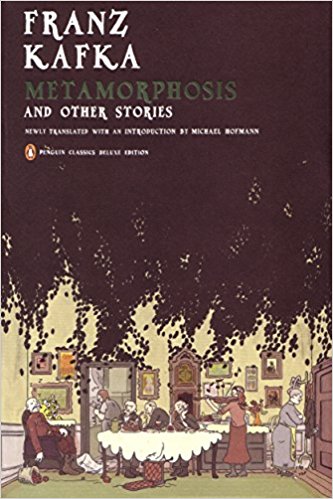
"Before the Law: "Three Years on Rikers Without Trial" The New Yorker
Judith Butler, Avital Ronell and Laurence Rickels: Kafka's "Before The Law: Law of The Father" 2011
Martin Gropius Bau exhibits the original manuscript of Franz Kafka's "The Trial"

November 8:
Required Listening:
Franz Kafka, "Before the Law" (Orson Welles's version of the story in his film adaptation, The Trial)
Required Readings:
Jacques Derrida, "Before the Law," in Acts of Literature, pp.181-200.
This book has the complete translation of Derrida's essay, but you don't need to buy it:
Jacques Derrida, "Before the Law" in Jacques Derrida, Sandra van Reenen and Jacques de Ville (Translators), Before the Law: The Complete Text of Préjugés (2018)

November 13:
Required Reading:
Jacques Derrida, "Before the Law," in Acts of Literature, pp. 201-220.
This book has the complete translation of Derrida's essay, but you don't need to buy it:
Jacques Derrida, "Before the Law" Jacques Derrida, Sandra van Reenen and Jacques de Ville (Translators), Before the Law: The Complete Text of Préjugés (2018)
Recommended Reading:
Totem and Taboo, by Sigmund Freud
Franz Kafka, The Problem of Our Laws
Epistle to the Romans, Chapter 7
"Kafka’s Last Trial" - NYTimes
Habeas Corpus / The End of Habeas Corpus
Max Brod's "readings" of Kafka's will in three postscripts Brod wrote to three successive editions of The Trial.
After Hours (1985) - Just Let Me In Scene
The Wizard of Oz "Who rang that bell?"
I shall simply cite a few places in the chapter to conclude, a little like the white pebbles which one drops on a path, or those on the tomb of the rabbi Loew which I saw again at Prague a few months ago, just before an arrest and an investigation without trial during which the representatives of the law asked me, among other things, whether the philosopher whom I was going to visit was a "Kafkologue" (I had said that I had come to Prague also to follow the tracks of Kafka); my officially appointed lawyer had told me: "You must feel that you are living a story by Kafka"; and upon leaving me: "Don't take this too tragically, live it ac a literary experience." And when I said that I had never seen the drugs that were supposed to have been discovered in my suitcase before the customs officers themselves saw them, the prosecutor replied: "That's what all drug traffickers say.Here, then, are the little white pebbles. It is a question of prejudgment and prejudice.
"But I am not guilty," said K.; "it's a misunderstanding. And if it comes to that, how can any man he called guilty? We are all simply men here, one as much as the other." "That is true," said the priest, "but that's how all guilty men talk."
--Jacques Derrida, "Before the Law," p. 218
November 15:
Reading Reading:
Franz Kafka, "The Judgment," trans M. Hoffman; or read the Muirs' translation; or read Stanley Corngold's translation.
(Not really) Recommended Reading:
Stanley Corngold's essay on "The Judgment."
November 20:
Reading Reading:
Vladimir Nabokov, Pale Fire, pp. 11-110. You can read the novel online here (thanks, Samantha.) Or you can read a pdf of the paperback here.
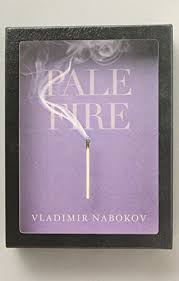
Recommended Reading for Ryhming Couplets:
Alexander Pope, An Essay on Man: Epistle I

November 20: Thanksgiving
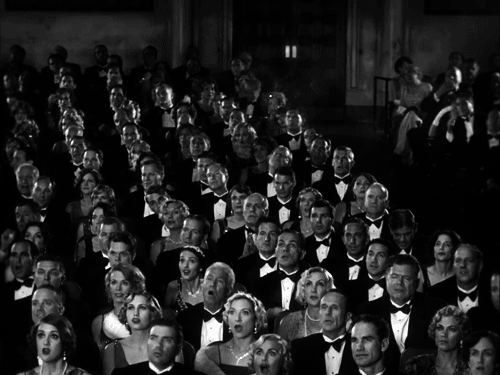
November 27:
Required Reading:
Vladimir Nabokov, Pale Fire, pp. 110-210.

Recommended Readings:
Pale Fire: A Poem in Four Cantos by John Shade 2011
Dmitri Nabokov, Original of Laura
Yuri Leving, ed. Shades of Laura: Vladimir Nabokov's Last Novel, The Original of Laura Oct 28, 2013
November 29:
Required Reading:
Vladimir Nabokov, Pale Fire, 211-315.

Last Assignment due December 3 by 5:00 p.m. No paper is due. Send me the discussion question you think is the best, the most thought provoking, the best written, the most interesting, of the semester. Just cut and paste it into a word doc and send it to me at the usual gmail address. So you see, the assignment is very simple. However, I will admit that it does have a Kafkaesque dimension to it, an dimension that may haunt you as you try to arrive at your judgment, passing over sentences without passing sentence, discovering it is you yourself that is on trial as you take responsibility for your verdict.
(Please email it to me at [email protected]).
December 4:
Required Reading:
Alexander Pushkin, Queen of Spades

Recommended Readings:
Stefan Zweig, Twenty-four Hours in the Life of a Woman

SAVED FOR LATER
SOME OTHER TIME
"Die Selbstwehr war eine zionistische deutschsprachige Zeitschrift, die von 1907 bis Ende 1938 in Prag erschien."
Kafka, Vor dem Gesetz, in: Selbstwehr. Unabhängige jüdische Wochenschrift, Jg. 9, Nr. 34 (07.09.1915, Neujahrs-Festnummer), 1991_92_37-44_Spector.pdf
Franz Kafka, A Country Doctor (German: Ein Landarzt)
Fyodor Dostoyevsky, The Gambler
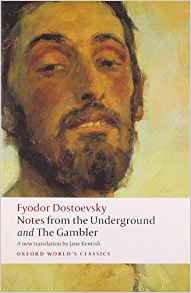
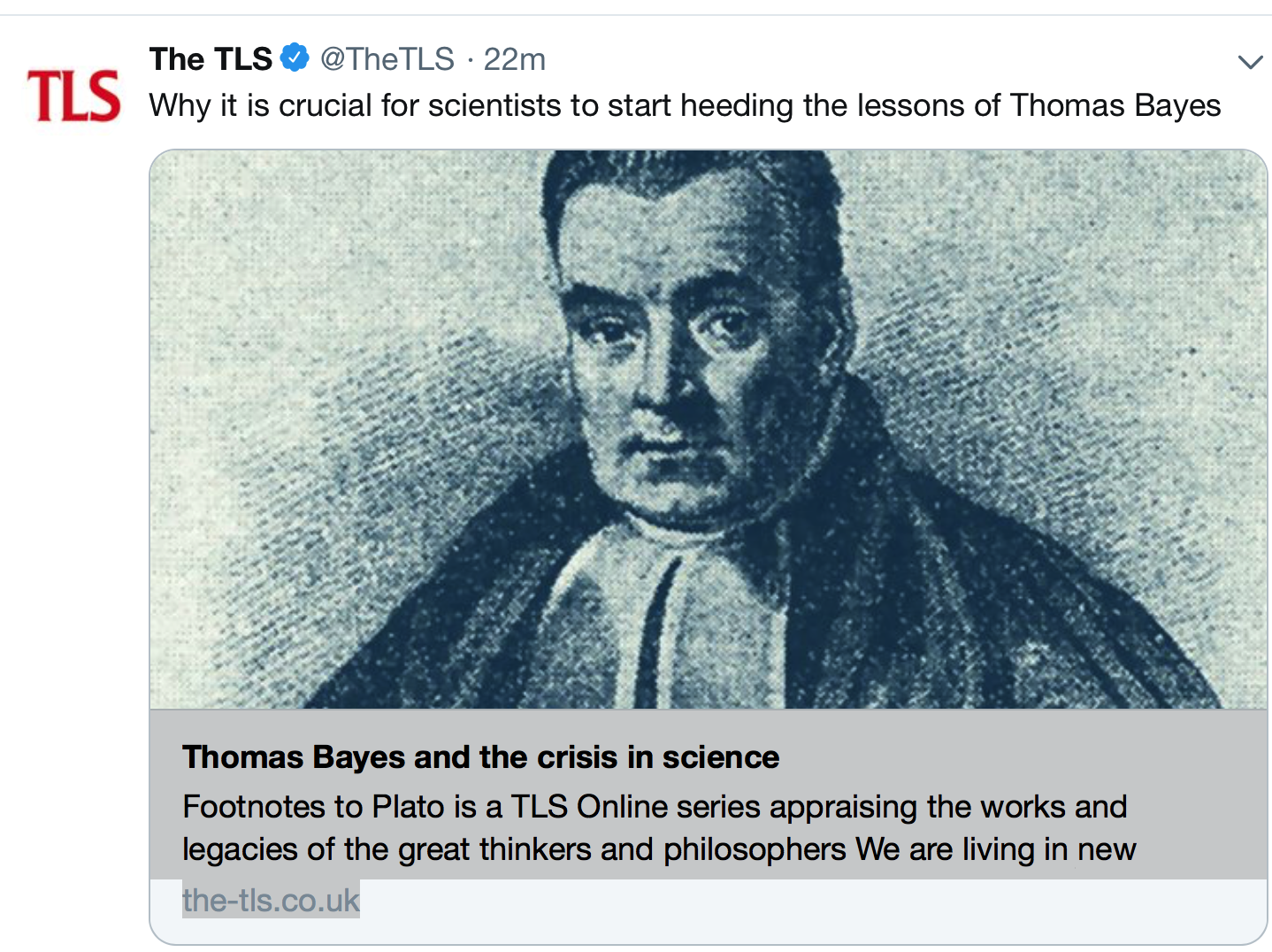

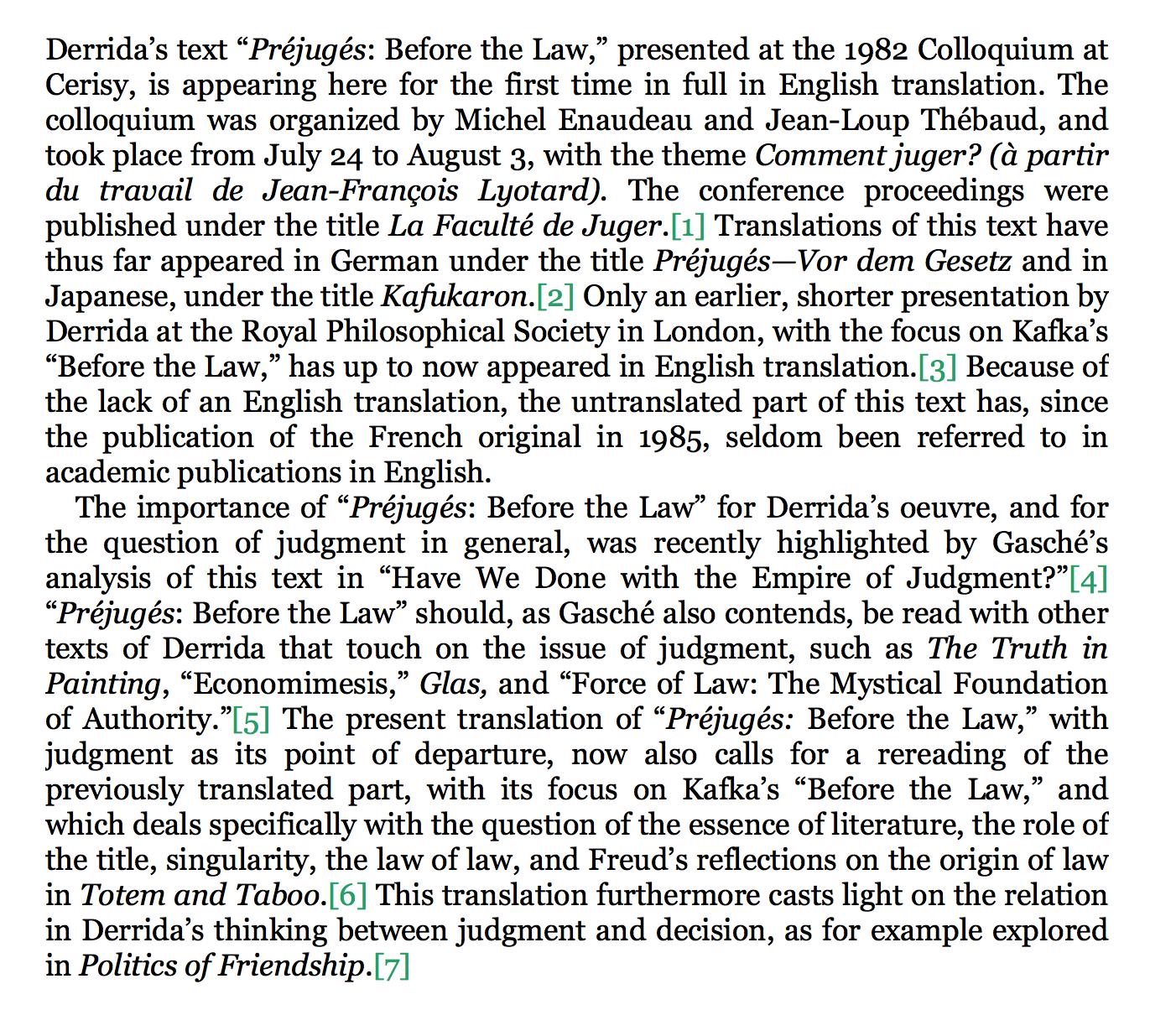
“Now I stretch out my hand, and from the further shore I bid adieu to all who have cared to read any among the many words that I have written.”
--Anthony Trollope, Autobiography
Immanuel Kant, Essay on the Maladies of the Head
Loser versus loser. Who? me?
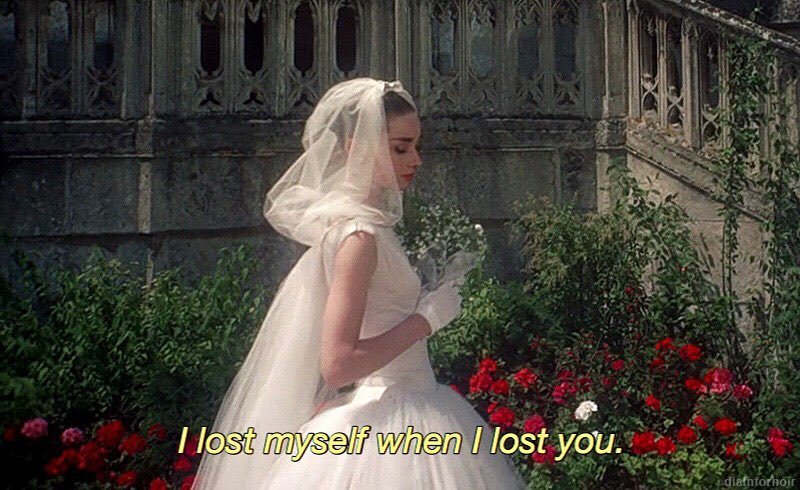

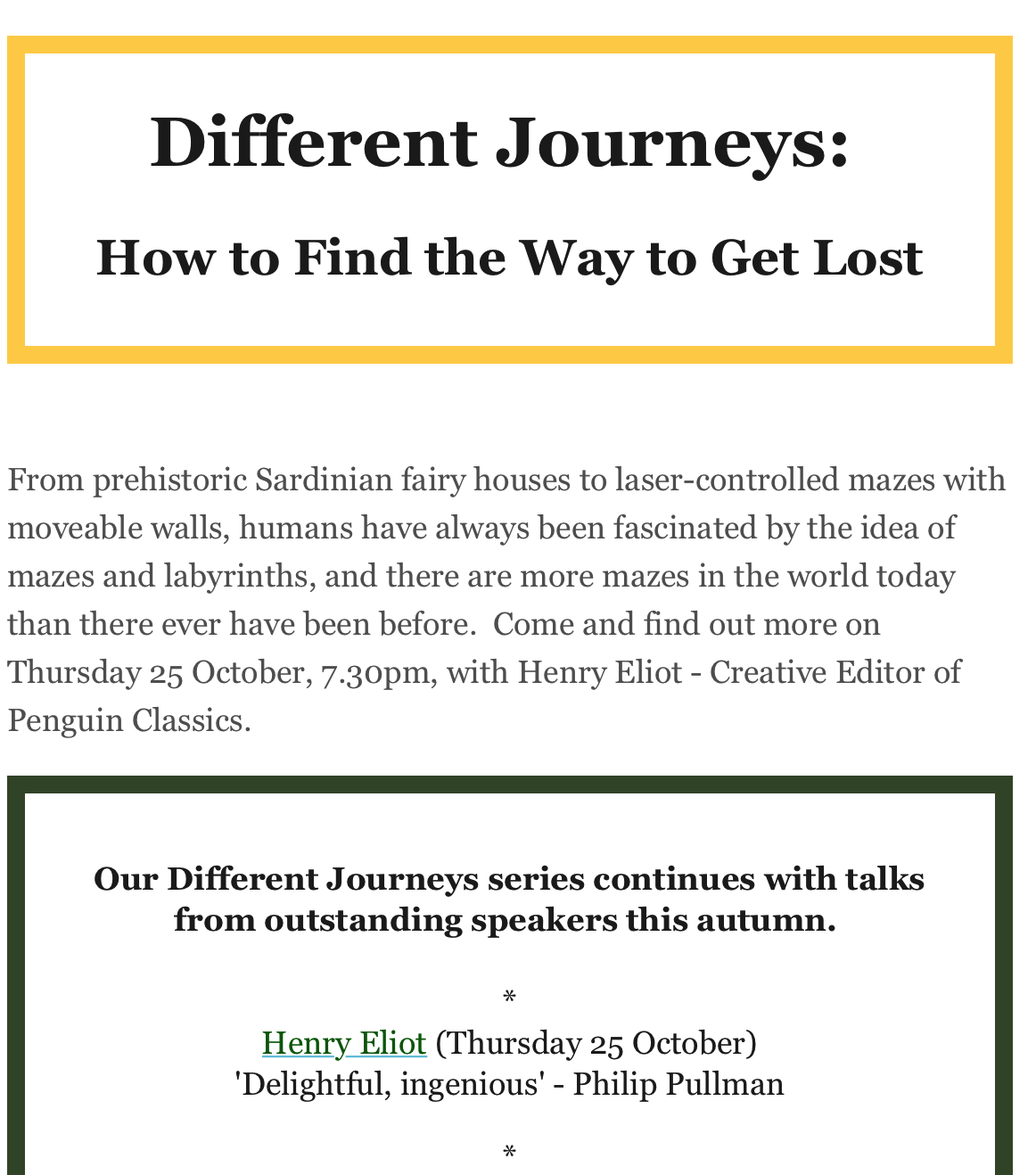

"The Fire Within (French: Le feu follet) is a 1963 French film directed by Louis Malle. It is based on the novel of the same name by Pierre Drieu La Rochelle. The film stars Maurice Ronet as Alain Leroy, a recovering alcoholic at a rehabilitation clinic in Versailles who has depression. He decides to end his life, but first decides to visit his friends in Paris one last time, in an attempt at finding a reason to continue living. The movie also stars Jeanne Moreau - who had previously worked with Ronet and Malle in Elevator to the Gallows - as well as Alexandra Stewart, Bernard Noel, Lena Skerla, Hubert Deschamps and Yvonne Clech. The score features the music of Erik Satie."
Godwi
oder
Das steinerne Bild der Mutter
Ein verwilderter Roman
Ludwig Tiecks "Kaiser Oktavian"

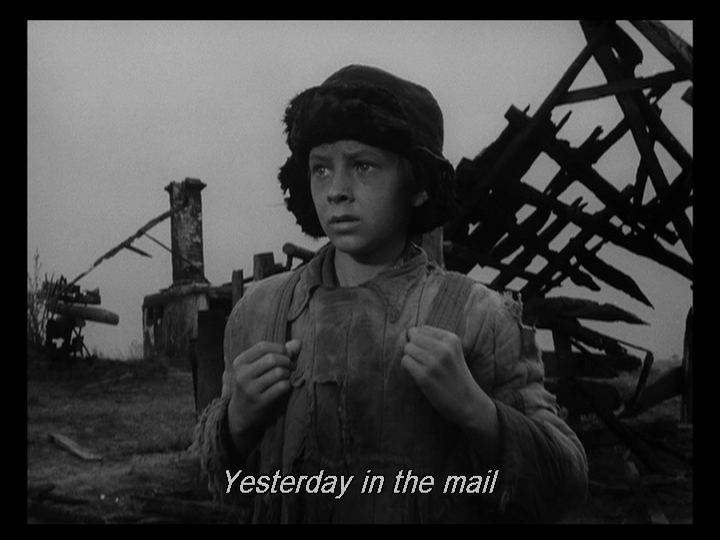
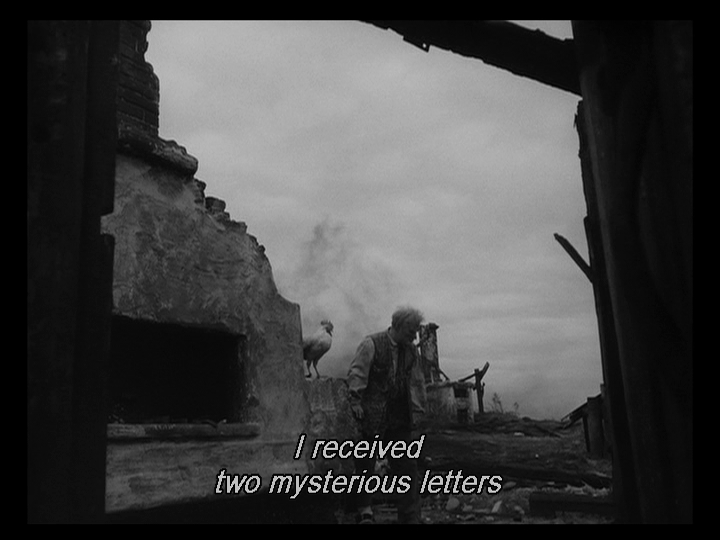
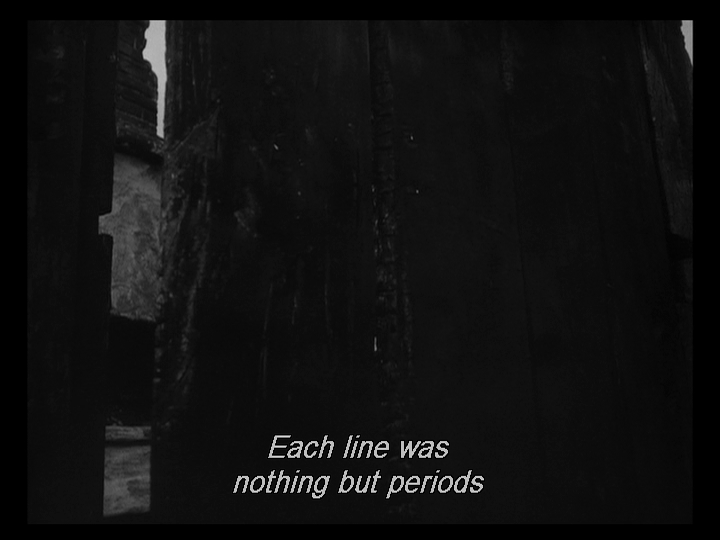
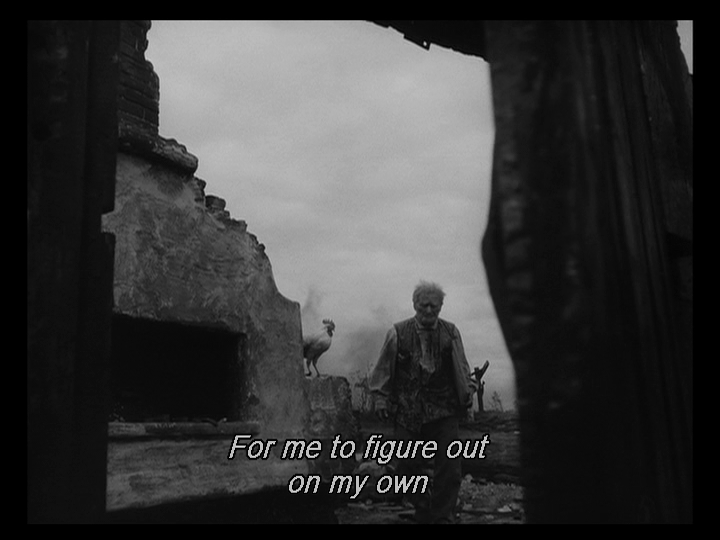
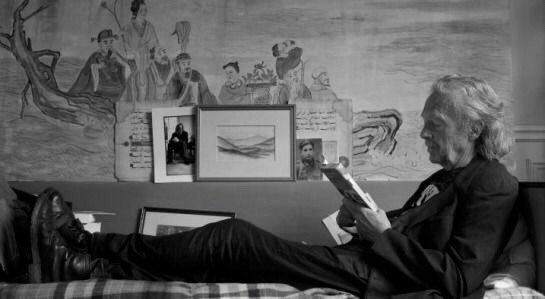
It is absolutely necessary to get lost an hour a day, absolutely, Peter Handke




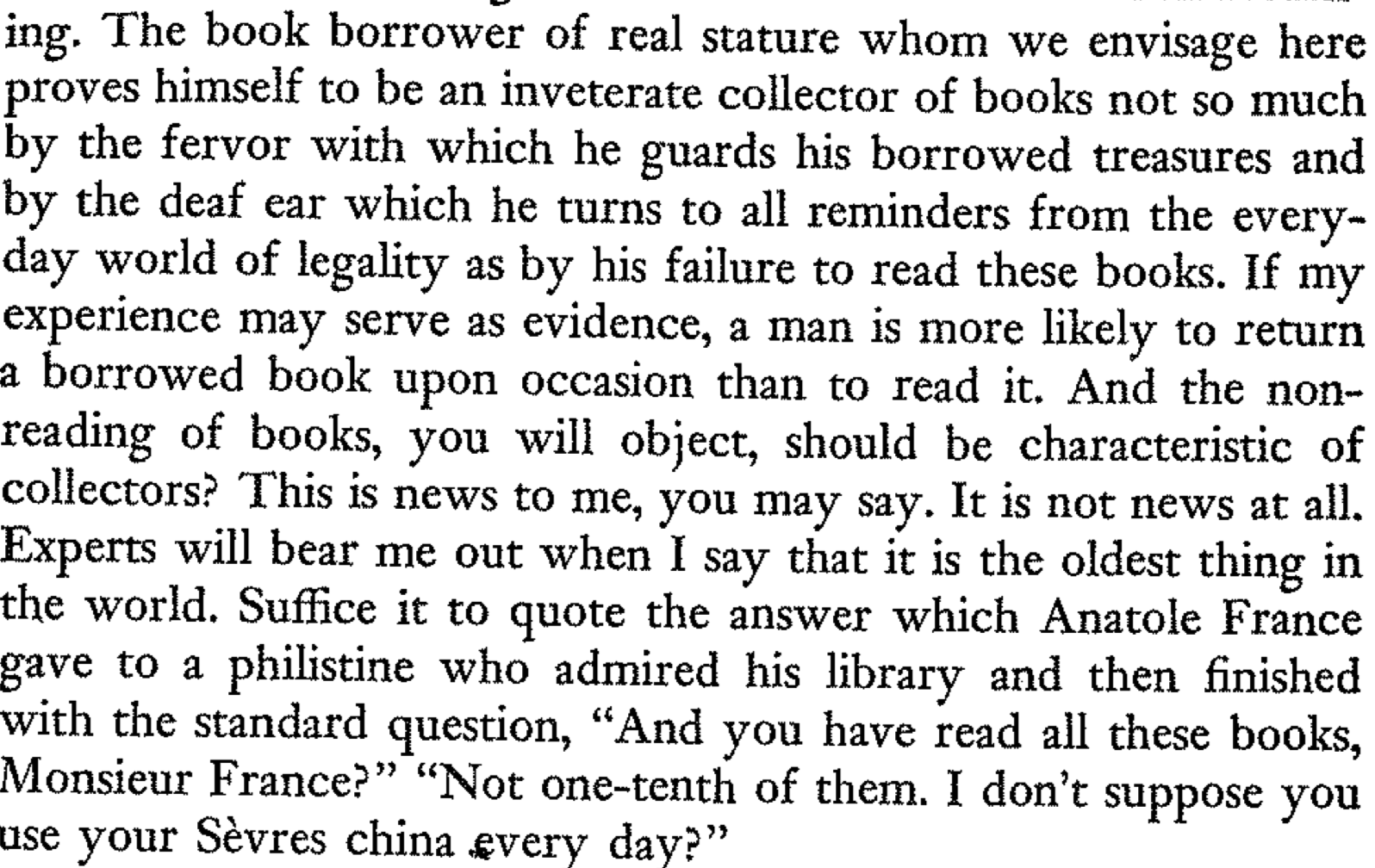
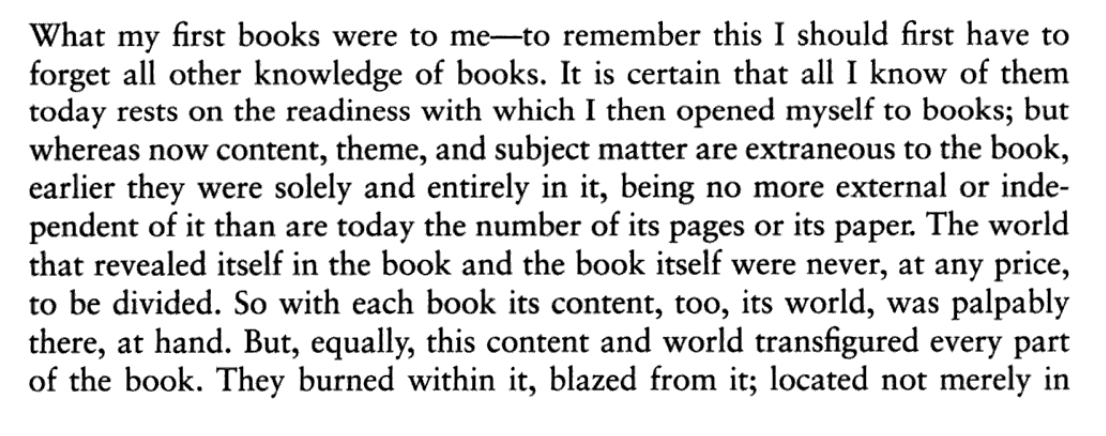
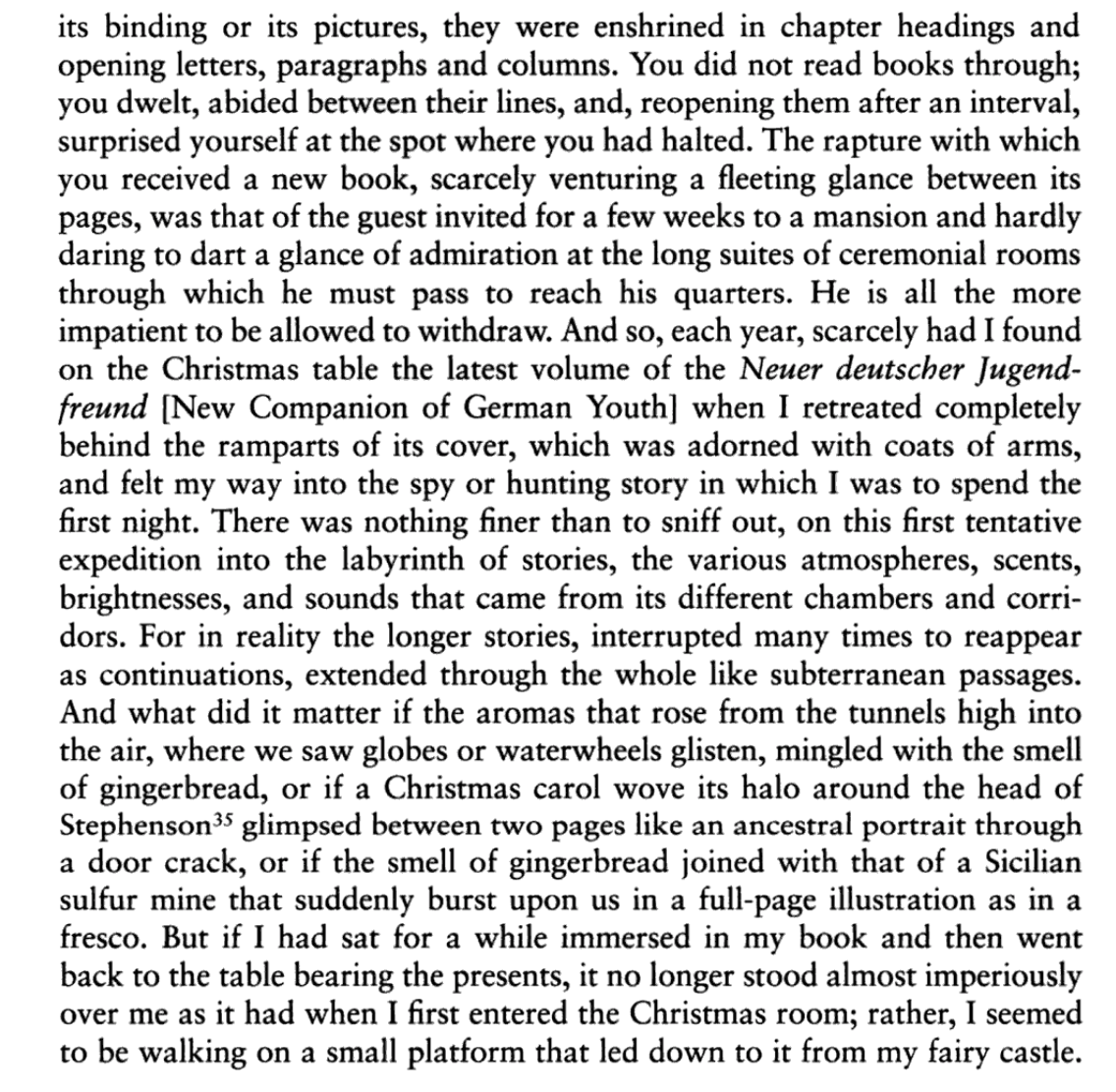
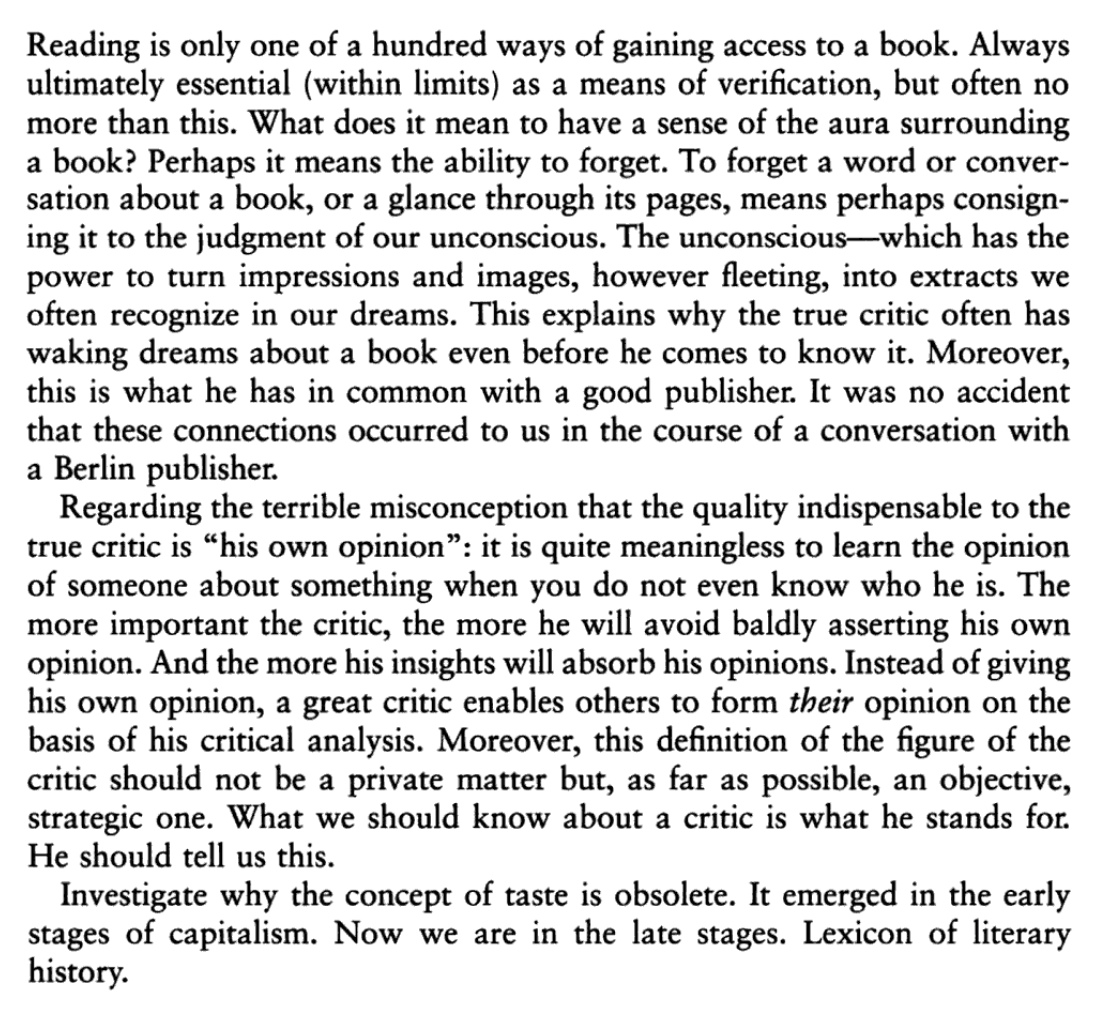
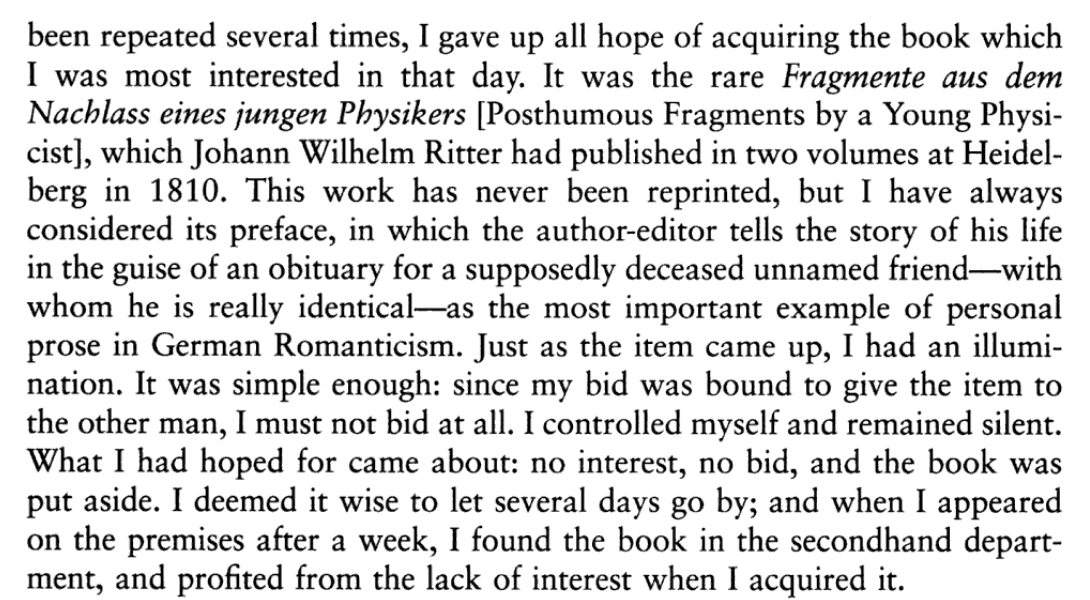
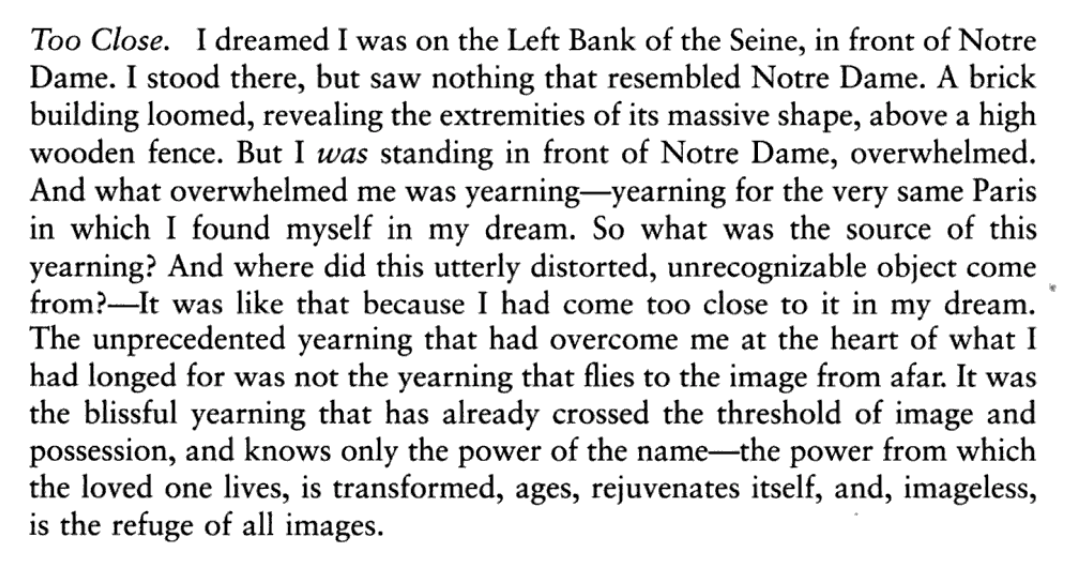
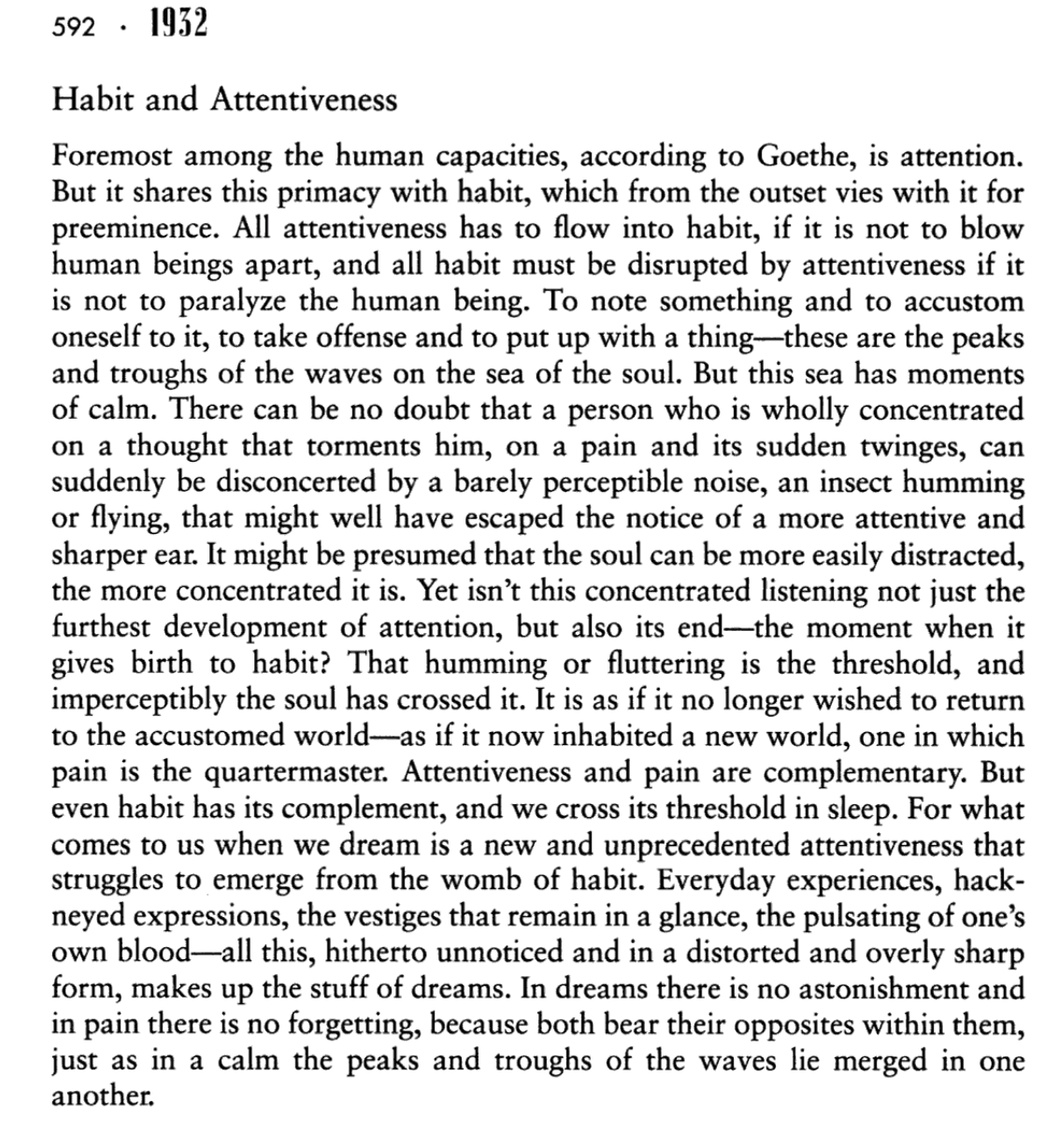
Demonic History: From Goethe to the Present

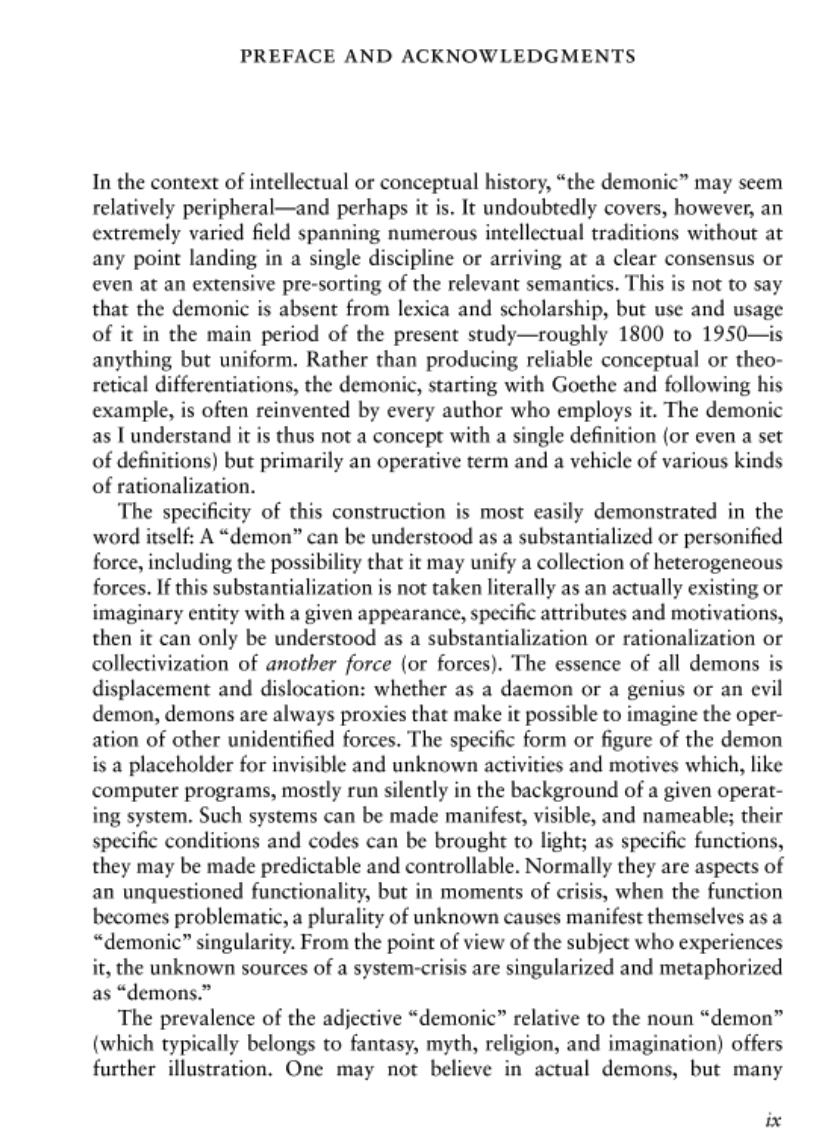
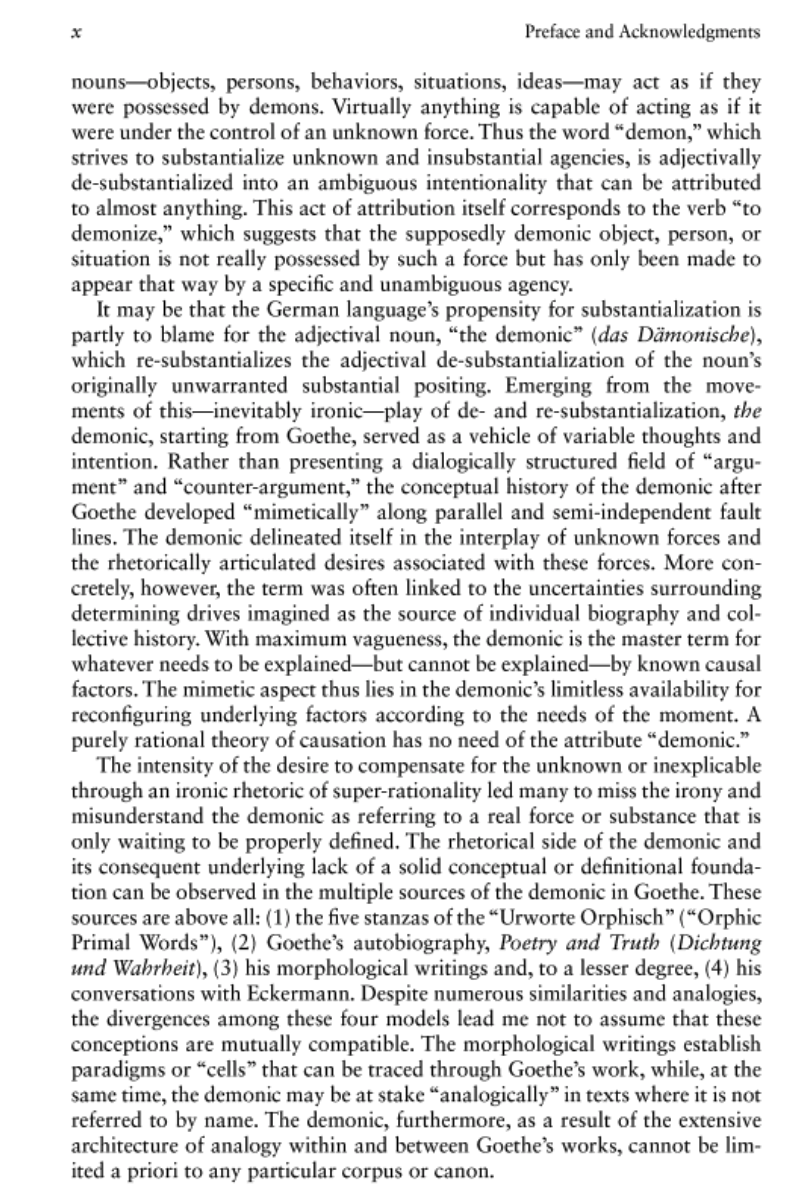
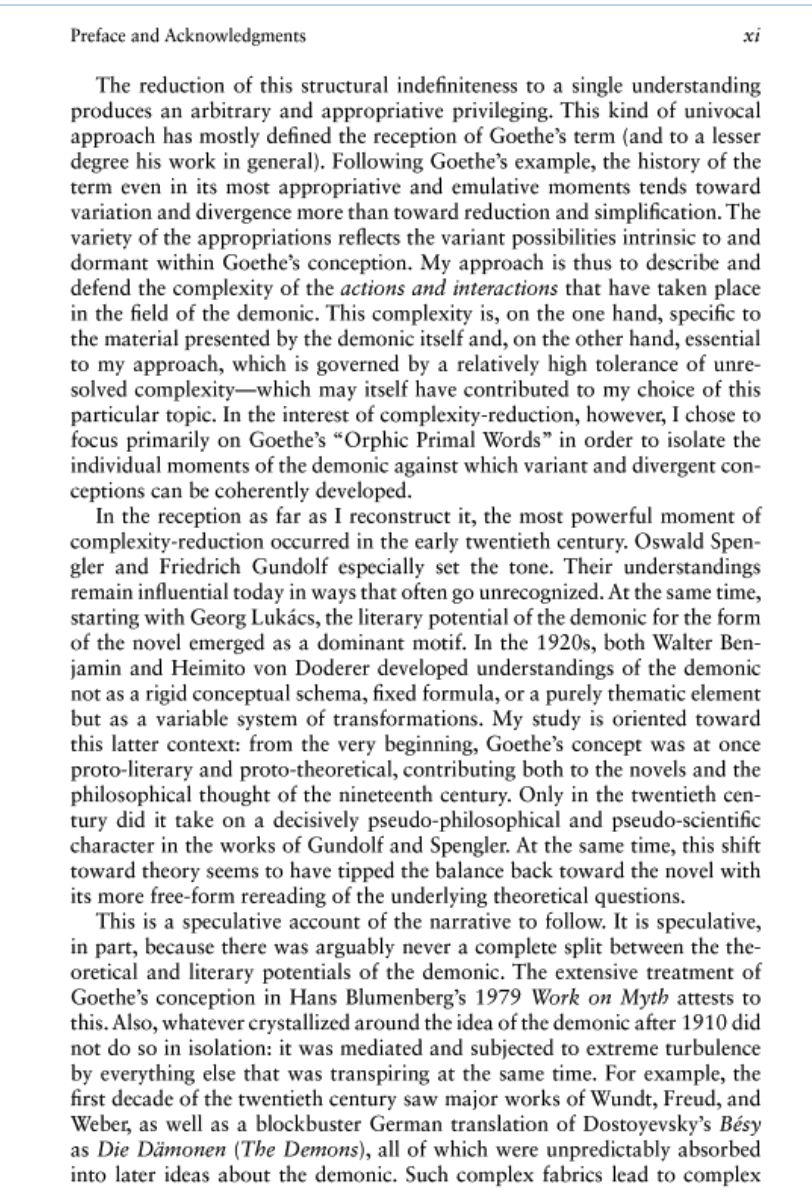
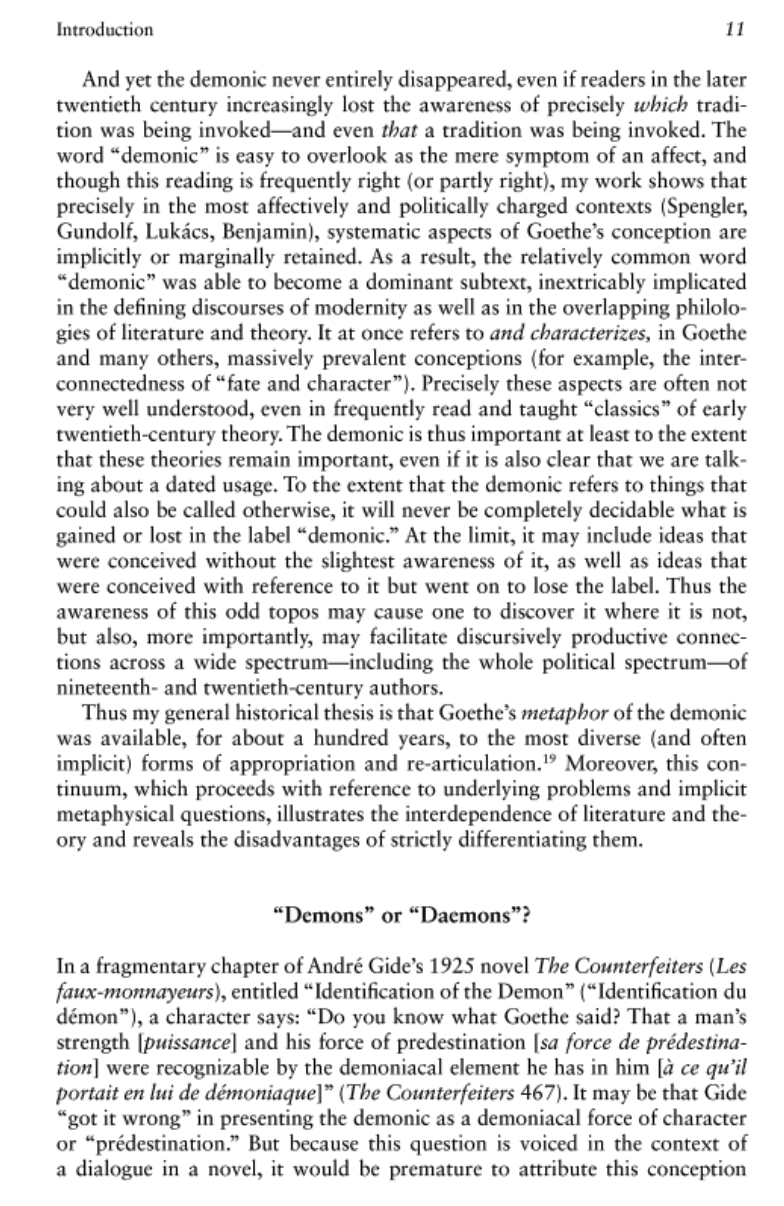
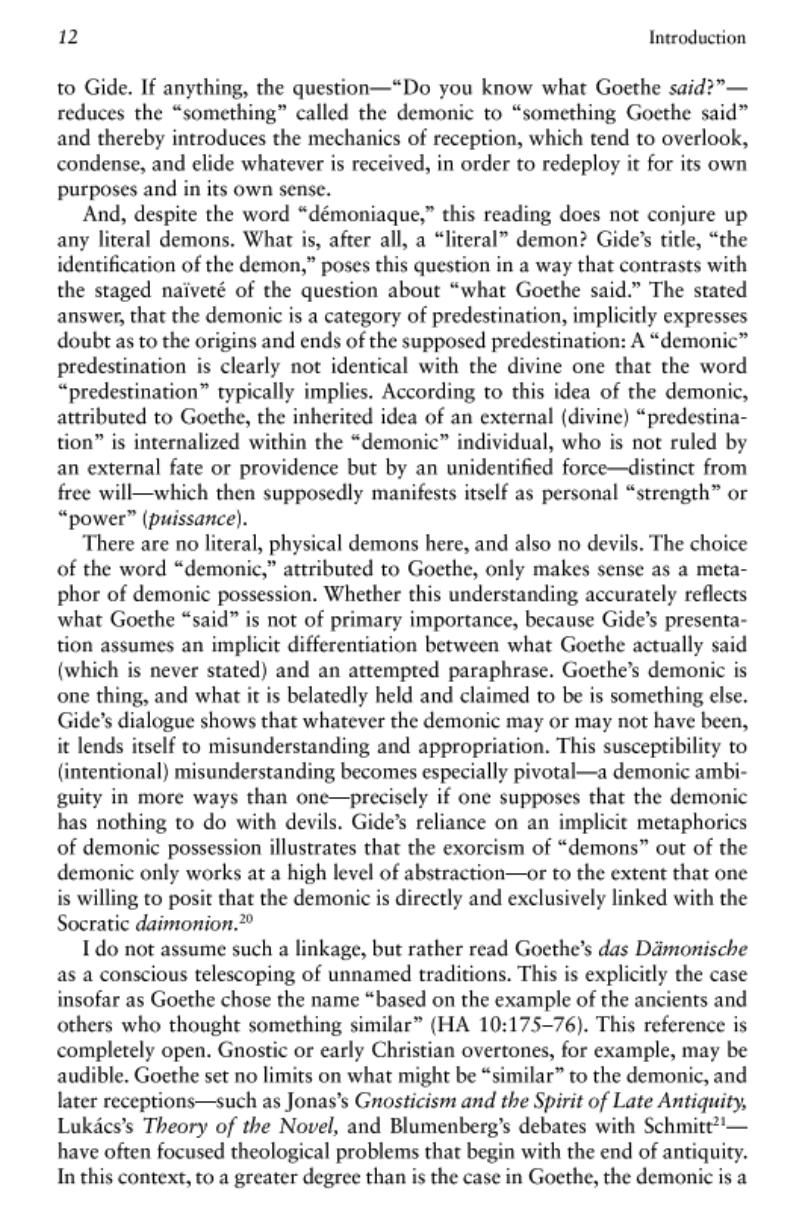
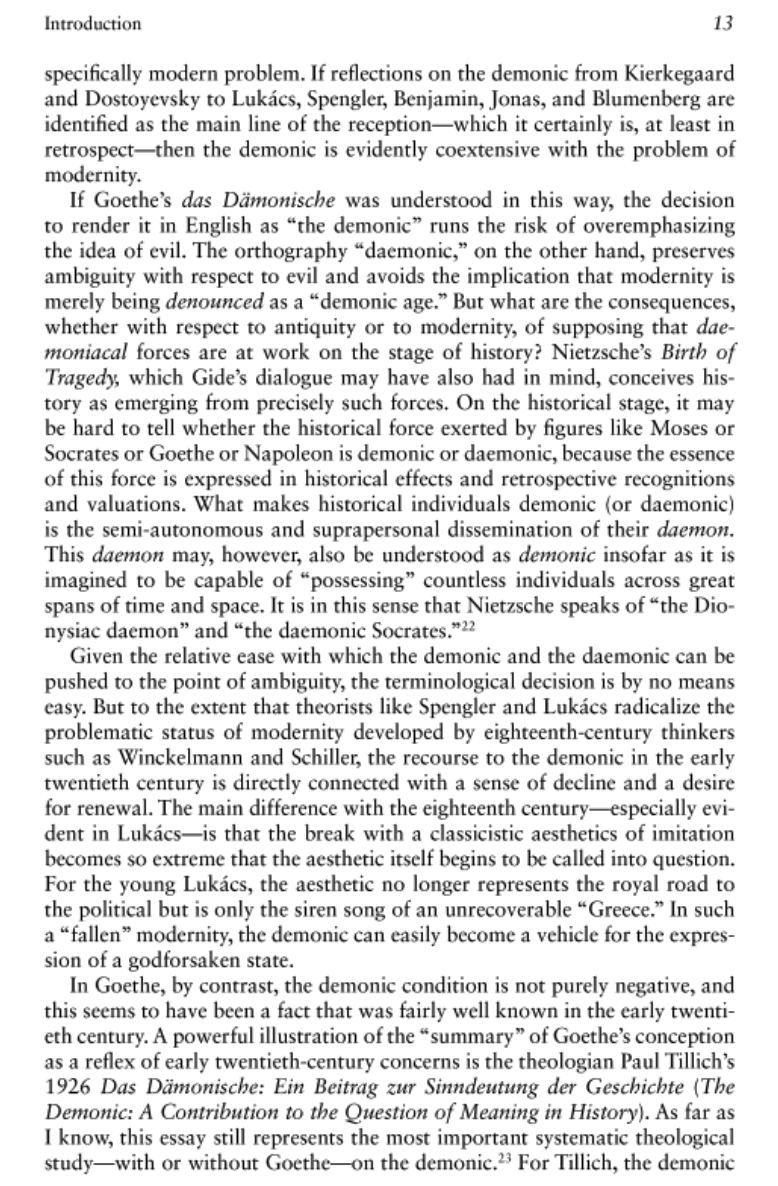
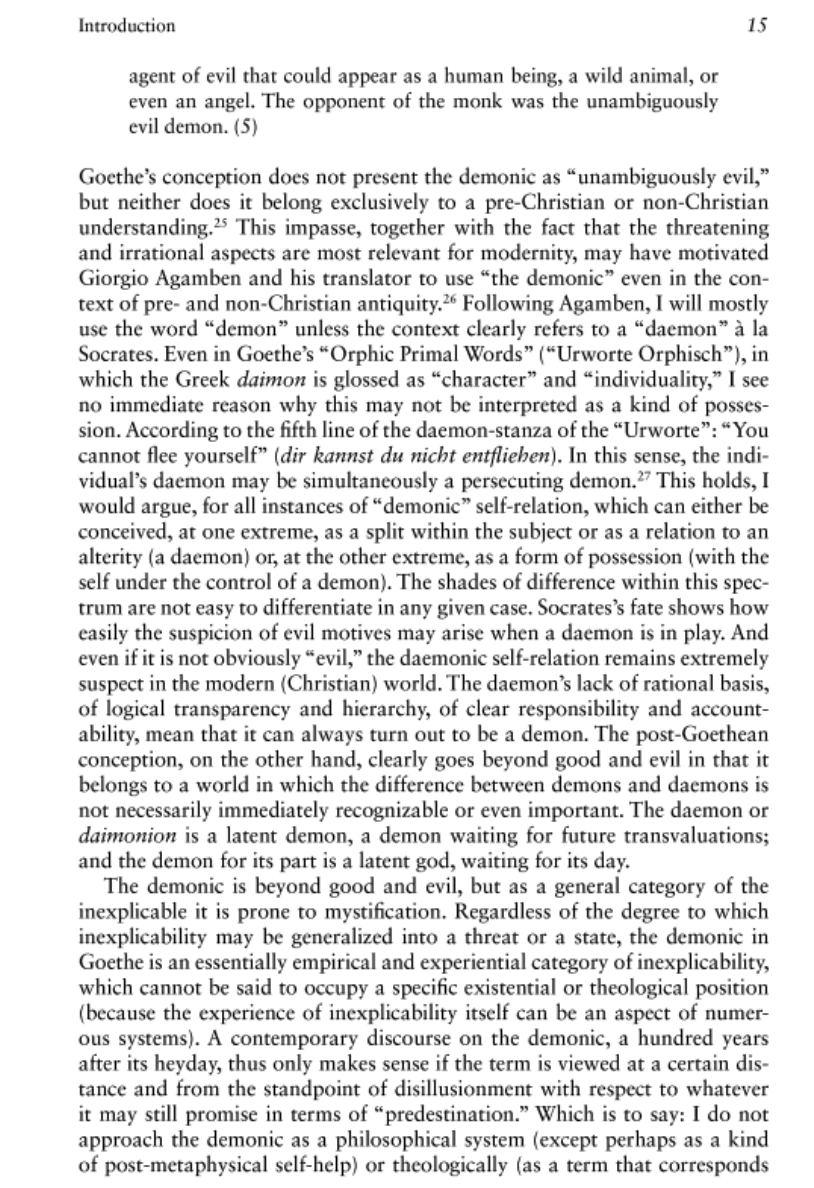

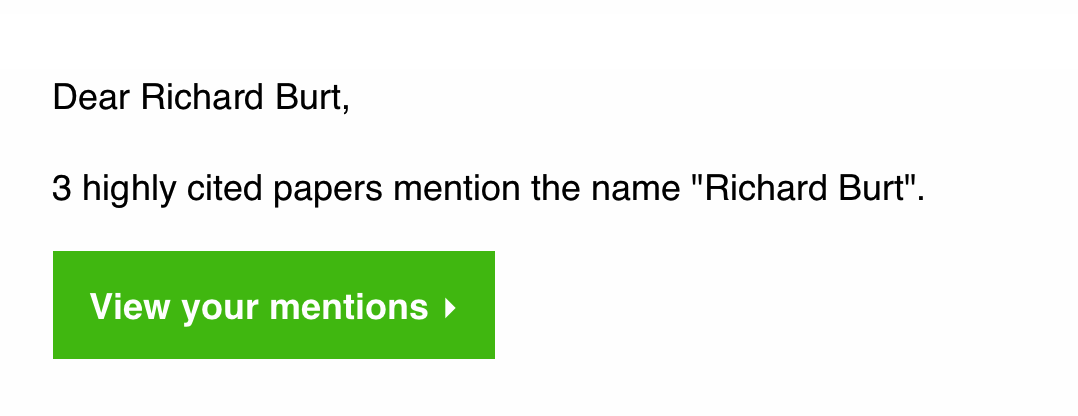

In the neoliberal imagination, there is no room for losers. But their elimination is perpetually deferred non-future of total winnerdom.

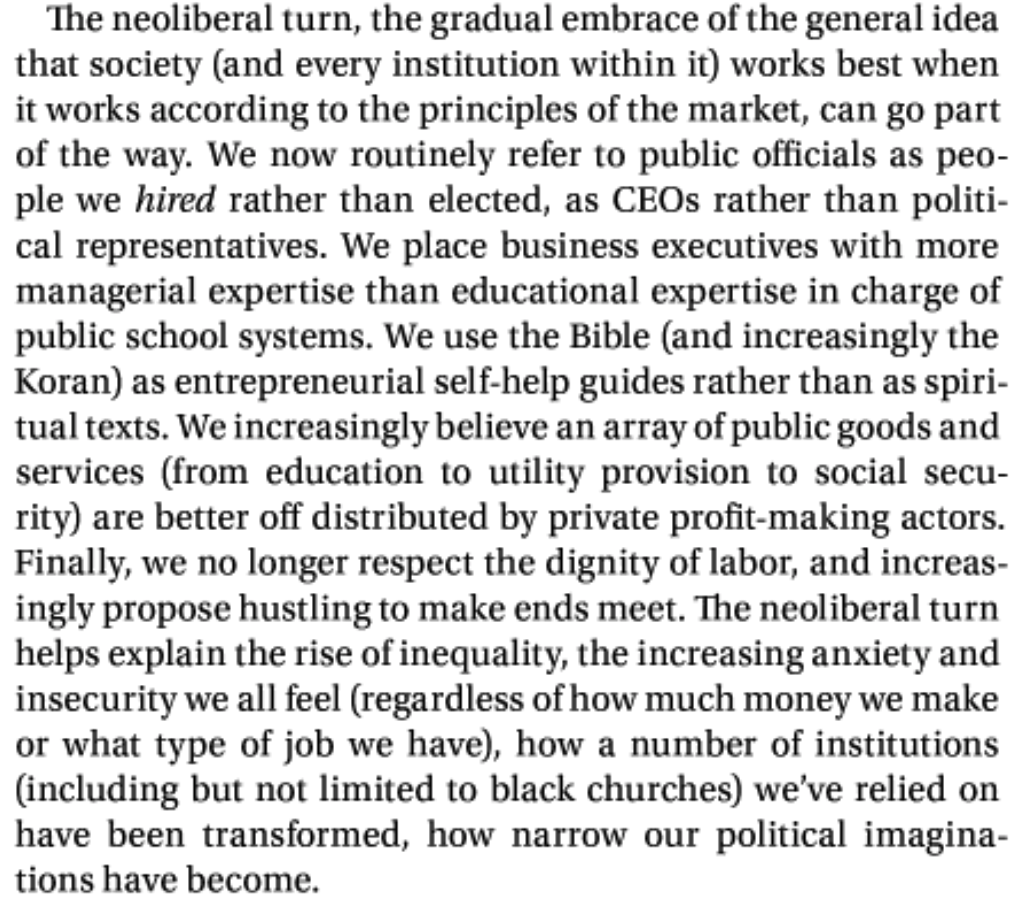
Lester K. Spence, Knocking the Hustle: Against the Neoliberal Turn in Black Politics 2015
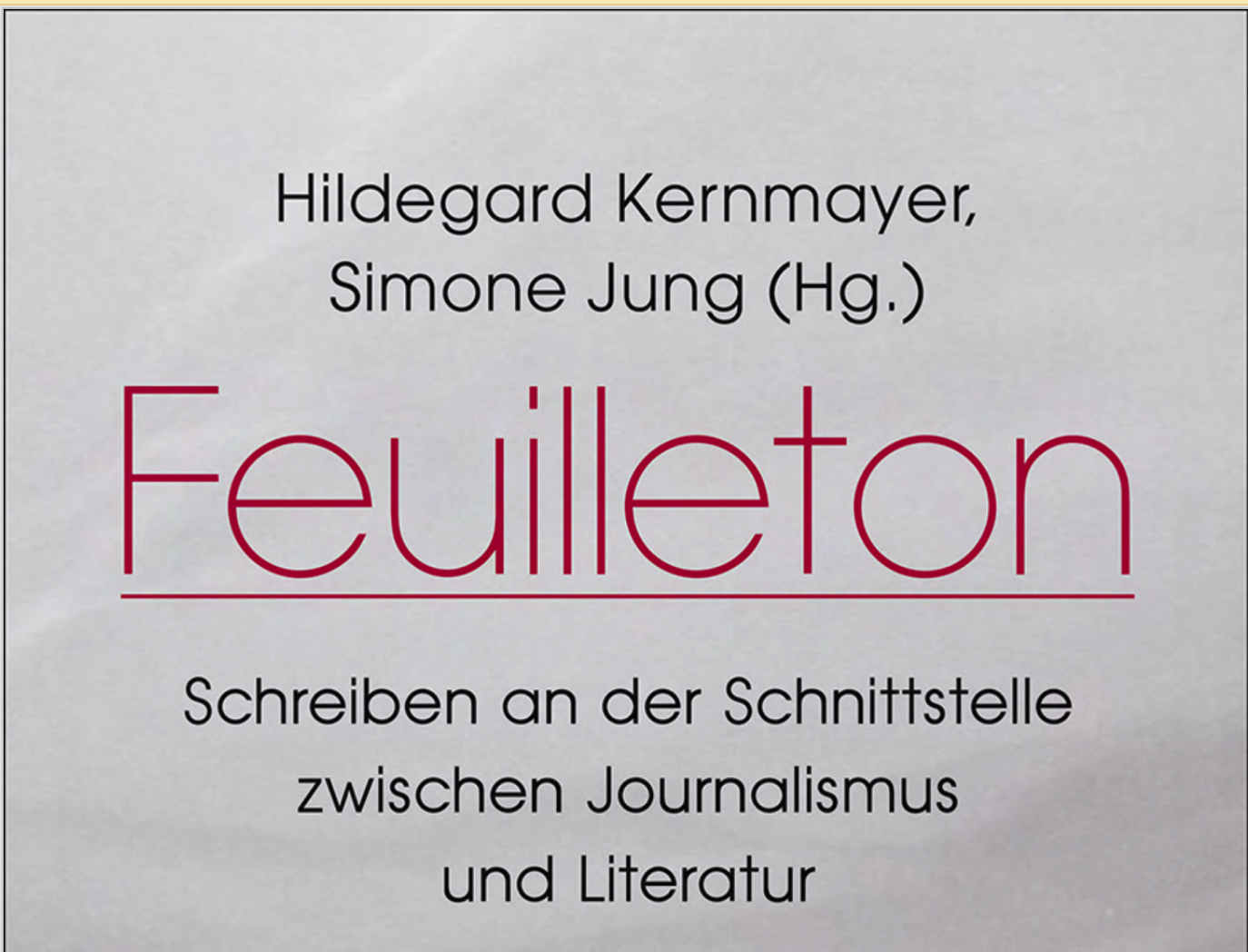
The Pre-conditions of Being a Loser: Do you want to be a good person? Are there times when your desire tobe good conflicts with your desire to something important and thoughtful you feel is really worth saying, in writing, something you know some people will think makes you, maybe now or maybe ten years from now, a bad person? Maybe even a hateful person? Maybe an elitist? Maybe even a pariah? If you say it, in writing, and you say it really well, with style, and you know it's good and could care less if other people think it's either great or gross, you're on your way to loserdom.
"HOW TO LOSE FRIENDS AND INFURIATE PEOPLE"
--Kenneth Kidd (in conversation with me)
"HOW TO LOSE STUDENTS AND INFURIATE ADMINISTRATORS"
--Richard Burt
Sven Spieker (Editor) Destruction (Whitechapel: Documents of Contemporary Art) 2017
The destructive character lives from the feeling that life is not worth living but that suicide is not worth the trouble.
--Walter Benjamin, "The Destructive Character," Selected Writings Vol 2 part 2, 542
Esprit d'escalier See Jean-Jacques Rousseau's Confessions for many hilarious examples.
Looking obliquely:
Changing the Paradigm 2015 Developmental Trauma Panel | Dr. Bessel van der Kolk

https://www.the-tls.co.uk/articles/public/spinoza-philosophy-freedom/
What we won't have read this semester but might have:
No Refuge for the Loser
J.-K. Huysmans, A Haven [En Rade], in The Decadent Reader: Fiction, Fantasy, and Perversion from Fin-de-Siecle France Ed, Asti Hustvedt, 1999
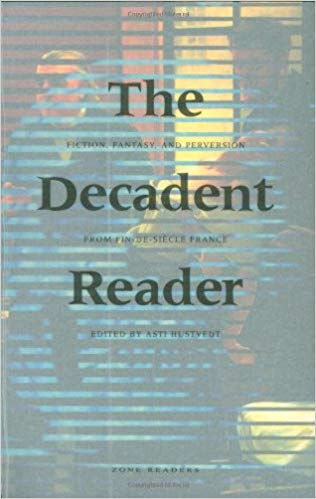
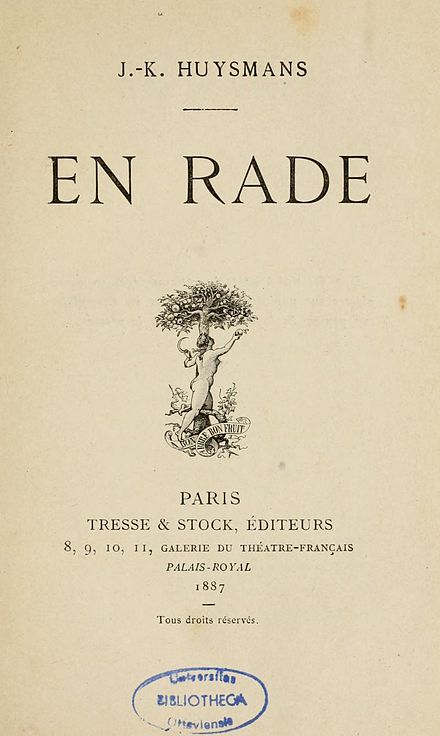
Michel Houellebecq, Submission (English translation, 2016)
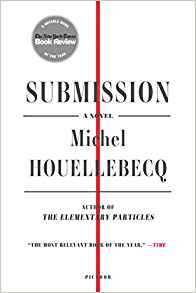
Roundtable discussion of Submission


Valerie Solanas, SCUM Manifesto

Jack Black, You Can't Win
Joe Coleman (Illustrator), William S. Burroughs (Foreword)
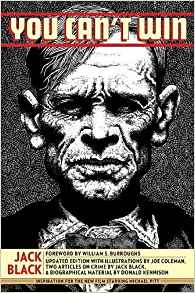
Gustave Flaubert, Bouvard and Pécuchet: A Tragi-comic Novel of Bourgeois Life
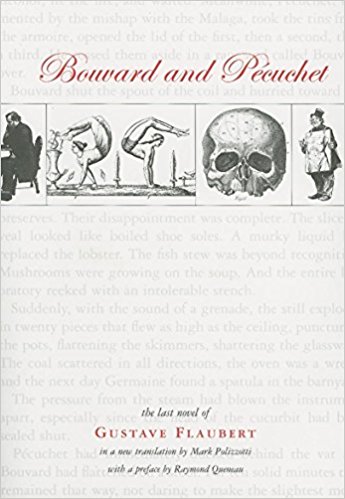
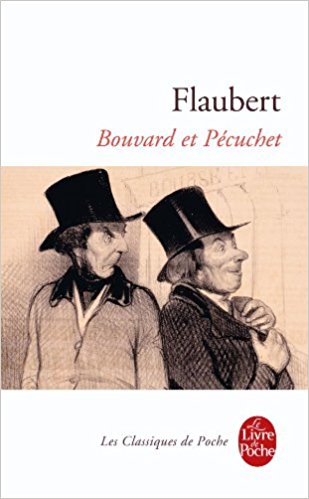
Gustave Flaubert, Dictionnaire des Idées Reçues
Darkness BY LORD BYRON (GEORGE GORDON)
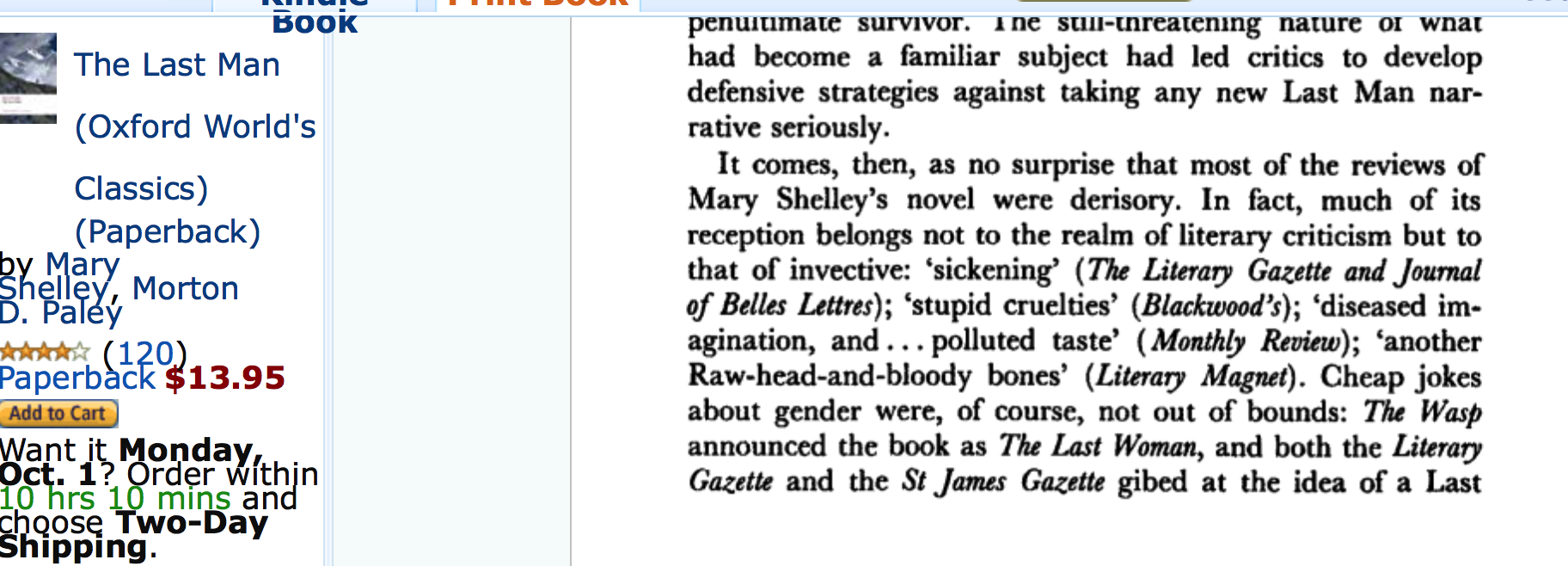

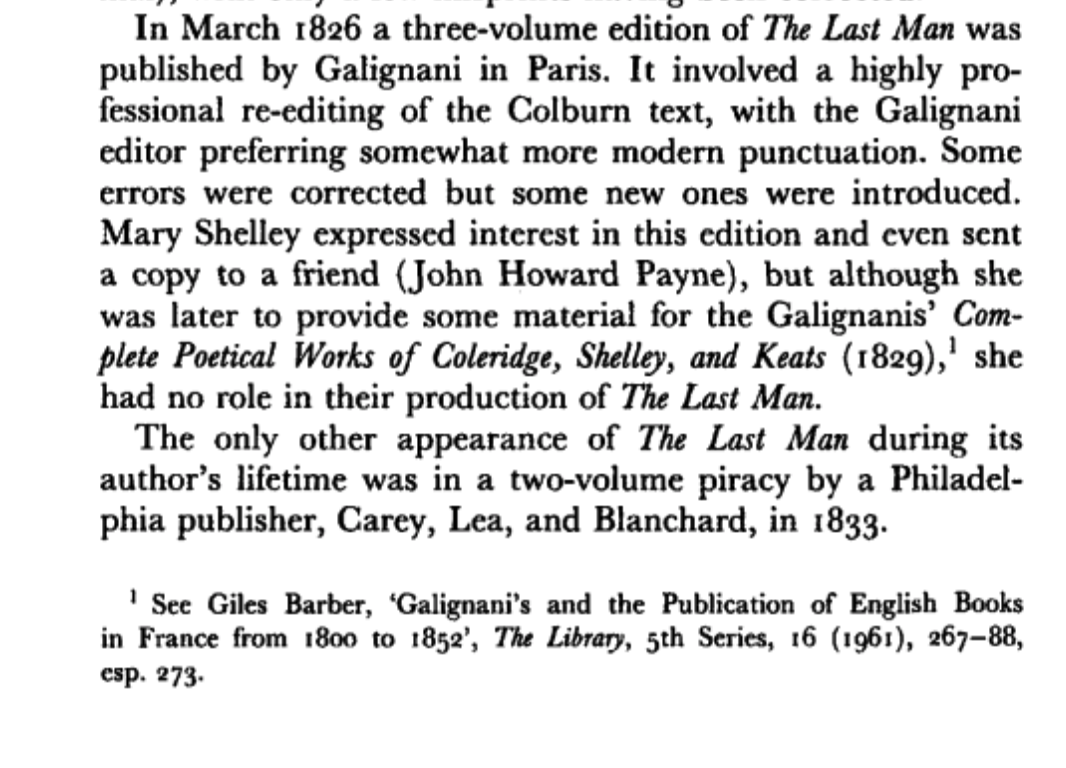

John Martin, The Last Man
Edgar Allan Poe, "The Mystery of Marie Roget" (the detective Dupin relies on press reports to solve the crime)
Recommended:
Walter Benjamin on Poe, Charles Baudelaire, and the crowd
Louis Huart, Physiology of the Flâneur, 1841
The Flâneur Discovers Paris, a Step at a Time
Henry James, THE ASPERN PAPERS
As soon as I came into the room I saw that she had drawn this inference, but I also saw something which had not been in my forecast. Poor Miss Tita’s sense of her failure had produced an extraordinary alteration in her, but I had been too full of my literary concupiscence to think of that. Now I perceived it; I can scarcely tell how it startled me. She stood in the middle of the room with a face of mildness bent upon me, and her look of forgiveness, of absolution, made her angelic. It beautified her; she was younger; she was not a ridiculous old woman. This optical trick gave her a sort of phantasmagoric brightness, and while I was still the victim of it I heard a whisper somewhere in the depths of my conscience: “Why not, after all—why not?” It seemed to me I was ready to pay the price. Still more distinctly however than the whisper I heard Miss Tita’s own voice. I was so struck with the different effect she made upon me that at first I was not clearly aware of what she was saying; then I perceived she had bade me goodbye—she said something about hoping I should be very happy. “Goodbye—goodbye?” I repeated with an inflection interrogative and probably foolish. I saw she did not feel the interrogation, she only heard the words; she had strung herself up to accepting our separation and they fell upon her ear as a proof. “Are you going today?” she asked. “But it doesn’t matter, for whenever you go I shall not see you again. I don’t want to.” And she smiled strangely, with an infinite gentleness. She had never doubted that I had left her the day before in horror. How could she, since I had not come back before night to contradict, even as a simple form, such an idea? And now she had the force of soul—Miss Tita with force of soul was a new conception—to smile at me in her humiliation. “What shall you do—where shall you go?” I asked. “Oh, I don’t know. I have done the great thing. I have destroyed the papers.” “Destroyed them?” I faltered. “Yes; what was I to keep them for? I burned them last night, one by one, in the kitchen.” “One by one?” I repeated, mechanically. “It took a long time—there were so many.” The room seemed to go round me as she said this, and a real darkness for a moment descended upon my eyes. When it passed Miss Tita was there still, but the transfiguration was over and she had changed back to a plain, dingy, elderly person. It was in this character she spoke as she said, “I can’t stay with you longer, I can’t;” and it was in this character that she turned her back upon me, as I had turned mine upon her twenty-four hours before, and moved to the door of her room. Here she did what I had not done when I quitted her—she paused long enough to give me one look. I have never forgotten it and I sometimes still suffer from it, though it was not resentful. No, there was no resentment, nothing hard or vindictive in poor Miss Tita; for when, later, I sent her in exchange for the portrait of Jeffrey Aspern a larger sum of money than I had hoped to be able to gather for her, writing to her that I had sold the picture, she kept it with thanks; she never sent it back. I wrote to her that I had sold the picture, but I admitted to Mrs. Prest, at the time (I met her in London, in the autumn), that it hangs above my writing table. When I look at it my chagrin at the loss of the letters becomes almost intolerable.
https://www.gutenberg.org/files/211/211-h/211-h.htm
The Spoils of Poynton
By Henry James
She felt sick; she sank upon a seat, staring up at him. "Do you mean that great house is lost?"
"It was near it, I was told, an hour ago—the fury of the flames had got such a start. I was there myself at six, the very first I heard of it. They were fighting it then, but you couldn't quite say they had got it down."
Fleda jerked herself up. "Were they saving the things?"
"That's just where it was, miss—to get at the blessed things. And the want of right help—it maddened me to stand and see 'em muff it. This ain't a place, like, for anything organized. They don't come up to a reel emergency."
She passed out of the door that opened toward the village and met a great acrid gust. She heard a far-off windy roar which, in her dismay, she took for that of flames a mile away, and which, the first instant, acted upon her as a wild solicitation. "I must go there." She had scarcely spoken before the same omen had changed into an appalling check.
Her vivid friend, moreover, had got before her; he clearly suffered from the nature of the control he had to exercise. "Don't do that, miss—you won't care for it at all." Then as she waveringly stood her ground, "It's not a place for a young lady, nor, if you'll believe me, a sight for them as are in any way affected."
Fleda by this time knew in what way she was affected: she became limp and weak again; she felt herself give everything up. Mixed with the horror, with the kindness of the station-master, with the smell of cinders and the riot of sound, was the raw bitterness of a hope that she might never again in life have to give up so much at such short notice. She heard herself repeat mechanically, yet as if asking it for the first time: "Poynton's gone?"
The man hesitated. "What can you call it, miss, if it ain't really saved?"
https://www.gutenberg.org/files/33325/33325-h/33325-h.htm
John T. Irwin, The Poetry of Weldon Kees: Vanishing as Presence
Carl Gustav Jochmann , Heinrich Zschokke Carl Gustav Jochmann's, von Pernau, Reliquien: Aus seinen nachgelassenen Papieren Publication date 1836
"The Disappearing Poet
What Ever Happened to Weldon Kees?"

Messiness & Creativity: How a Messy Desk and Creative Work Go Hand in Hand
Finding Your Way into a Literary Work: Reading as Invention (Inventio) and as Discovery (Why those two words?) Criticism is Creative (Writing).
"Wildered" Percy Shelley, Alastor, l.140
Etymology / Online Etymology Dictionary
Reading the Table of Contents
Gérard Genette, Paratexts: Thresholds of Interpretation
Table of Contents pdf of Introduction Here.

Charlotte Perkins Gilman, The Yellow Wall-Paper and Other Stories
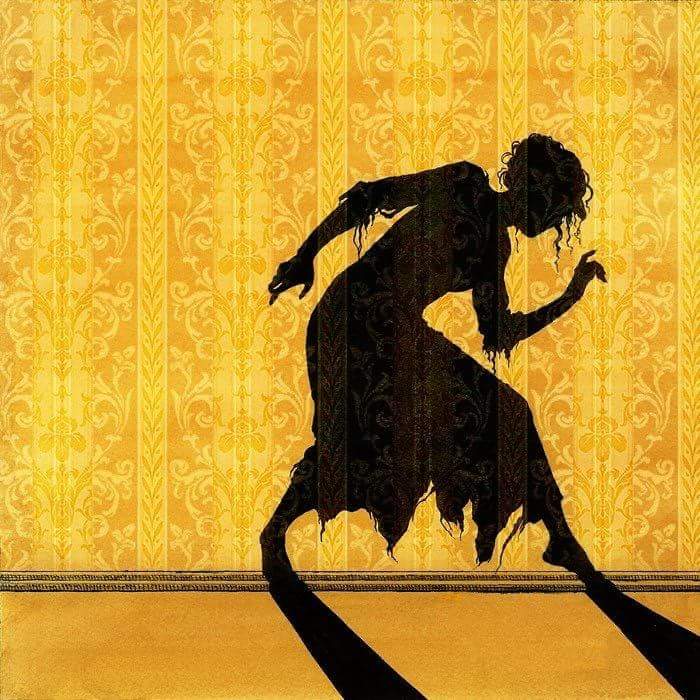

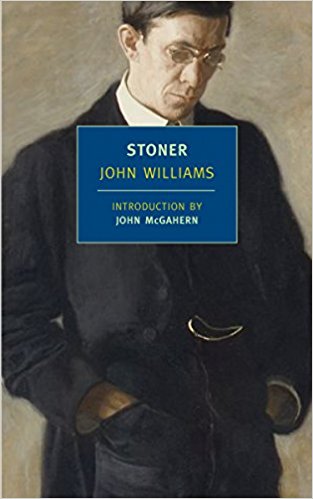
John Williams Stoner (New York Review Books Classics) 2006

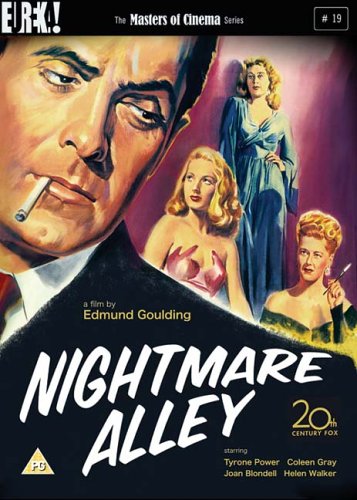
FRIEDRICH NIETZSCHE, Genealogy of Morals,Third Treatise
Martin Heidegger, selections from Being and Time and The Basic Concepts of Metaphysics; and "The Essence of Ground," in Pathmarks
Arthur Schopenhauer, "On Noise," in Studies in Pessimism
Mohamedou Ould Slahi, Larry Siems (Editor) Guantánamo Diary 2015
Maurice Blanchot, The Instant of My Death
How Guantánamo Diary Escaped the Black Hole
Innocent and Guilty Prisoners: Eleven Years without Charges at Gitmo
Habeas Corpus in the U.S. (Infinite Detention: the National Defense Authorization Act signed by President Obama on December 31st, 2011 / 2013)
Maurice Blanchot, "Literature and the Right to Death," in The Work of Fire, trans. Charlotte Mandell and Lydia Davis (Stanford, CA: Stanford University Press, 1995), 300-43.
Franz Kafka, In the Penal Colony or here. The German is here. Note the frequent use of the word "Urteil," meaning "verdict," "judgment," or "sentence," the same word Kafka used as the title of The Judgement aka The Verdict (Das Urteil).
Richard Thieberger, "The Botched Ending of In the Pelany Colony," The Kafka Debate. Ed. Ange Flores
Michel de Montaigne, "Of Coaches" Essays, Book Three, Chapter Six.
Jacques Derrida, Death Penalty Seminar, Vol. 1, Session Eleven, pp. 270-83.
Michel de Montaigne, "To His Father: On the Death of La Boétie," in Complete Works of Montaigne, Trans. Donald Frame, 1276-88.
Seneca, "On the Shortness of Life"
Maurice Blanchot, "The Last Word" in Friendship (1971; trans 1997)
Maurice Blanchot, "The Very Last Word" in Friendship (1971; trans 1997)
Jean-Jacques Rousseau, Reveries of a Solitary Walker, "Second Promenade"
Maurice Blanchot, "Idle Speech," from Friendship.
Jacques Derrida, "Fichus" and selected letters written by Walter Benjamin that Derrida discusses in "Fichus."
Jacques Derrida, "Force of Law"
Walter Benjamin, "Critique of Violence"
Friedrich Theodor Vischer, The Rabid Philosopher and Auch Einer: Eine Reisebekanntschaft (in English); Heimito von Doderer, "Eight Attacks of Rage" and "The Torture of the
Little Leather Pouches," in A Person Made of Porcelain and Other
Stories; Seneca, "On Anger"Friedrich Theodor Vischer, "A Rabid Philosopher"
Jörg Kreienbrock, Malicious Objects, Anger Management, and the
Question of Modern Literature

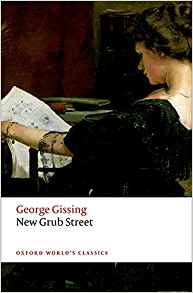
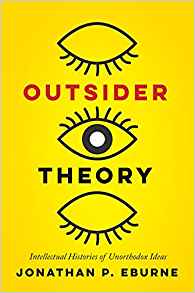

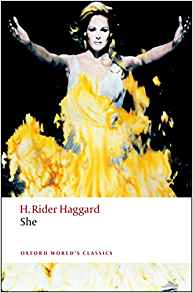

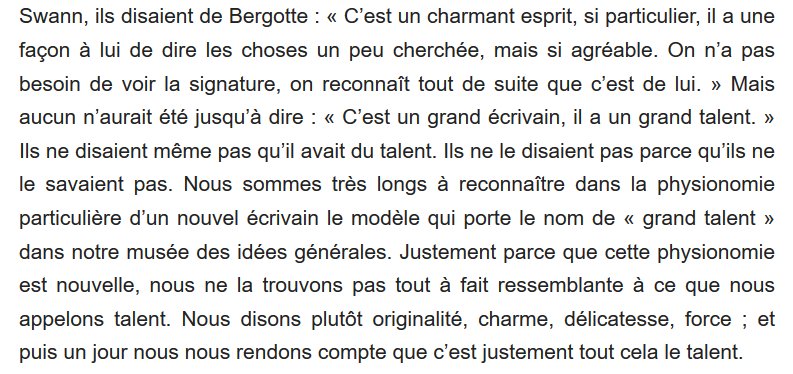

Proust Figaro Fugitive not recognizing his own publication
Can "Proust" write? Or, Proust's Invalid/ation of Literature
I would forget for a moment my knowledge that none of this existed, as we sometimes think of someone we love, forgetting for a moment they are dead.
The Fugitive, 537
I opened the Figaro. How tedious! The leading article bore precisely the same title as the one I had submitted but which had not been published. But not only the same title, here and there were one or two identical words. That was too much. I would have to write in to complain. . . . But there were not just those few words, there was everything, even my signature . . . It was my article, which had at least appeared! But my mind, which already in these days had already started to age and to tire a little, continued for a moment to reason as if it had not understood that it was my very own article, like those old men who are obliged to continue with a movement once they have started, even if it has become pointless, eve in if an unforeseen obstacle which they should immediately avoid has rendered it dangerous. . . .
What I was holding in my hand was not one particular copy of the newspaper, it was any one out of ten thousand; it was not only something written by me, I was something written by me and read by everyone. To appreciate the exact phenomenon as it occurs in each household, I must read this article not as an author but as one of the other readers of the newspaper; what I was holding in my hand was not just what I had written, it was the symbol of incarnation in so many minds. Thus in order to read it I must for a moment stop writing and become an ordinary reader of the newspaper. But now I had a pang of anxiety. Will the unsuspecting reader see this article? I open the newspaper absent-mindedly as would this unsuspecting reader, even wearing on my face my usual expression of knowing what there is in the newspaper this morning and being impatient to look at the social and political news. But my article is so long that my eyes, which are trying to avoid it, . . . cannot help chancing on an extract in passing. Yet many of those who do notice the leading article, and even those who read it, do not look at the signature. Even I would have been unable to say who had written the leading article the day before. And now I promise myself always to read them and remember their author’s name; but like a jealous lover . . . I think sadly that my future attentions will not compel, as they have not compelled, the reciprocal attentions of others. And then there are the people who have gone out hunting and those who have left for work too early. And yet, some people will still read it. I follow their example. I make a start.
As I read the article, even though I know that may people who read it will detest it, what I see behind each word seems to be printed there in black and white, I cannot believe that anyone who casts his eyes upon will not see exactly the same images as those I see, for I assume, with all the naivety of those who believe that it is the actual words we utter which travel down the telephone wires, that the author’s thoughts are directly perceived by the reader, whereas it is other thoughts which are constructed in his mind; at the very moment when I am trying to be the ordinary reader, my mind, as I read, is rewriting the article. . . . Thus each passage that a previous reader seemed to cast aside would attract a new admirer, the whole of the article would be praised to the skies by the masses and would overcome my own self-doubt so that I would no longer need to defend it myself. For in the truth of an article is similar to those of those sentences in Parliamentary reports where the words ‘We shall have to see’ . . . only take on their full import in the flowing context. . . [The article] is a collective Venus, of which we grasp only a severed limb if we merely take account of the author’s thought for this completely realized only in the minds of its readers. This where all is accomplished. And as a crowd, however select, is not an artist, its ultimate seal of approval always retains something of the touch. . .
[goes into a fantasy about Saint-Beuve reading his work to Mme de Boigne, p 534-35]
And countering my own self-doubt with the ten thousand voices of approval that supported me, I drew as great a feeling of strength and of belief in my talent from the reading which I was undertaking at this moment as I had drawn self-doubt when what I had written was addressed only to me. I saw my thoughts or even, failing my thoughts, for those where were unable to understand them, the repetition of my name and a kind of glorified echo of my person radiate over so many people at that very moment, colouring their thoughts with a dawning light which filled me with more strength and triumphal joy than the rosy fingers of dawn which pressed simultaneously at countless window panes . . . and now, at the very moment I am trying to be an ordinary reader, I am reading as an author, albeit not only as an author. So as to help the impossible creature that I am trying to become to reconcile all the contradictions in the way most favourable to me, although I am reading as an author, I am judging as a reader, making none of the demands that a piece of writing faces from the person who expects to match it up to the ideal which he wanted to express. When I wrote them, the sentences of my article were so weak compared to my thought, so complicated and opaque compared to my harmonious and transparent vision, so full of gaps which I had not managed to fill, that reading them caused me to suffer, they had only accentuated feelings of impotence and incurable lack of talent. But now forcing myself to become a reader, if I delegated to others the painful duty of judging me, I was at least able to wipe the slate clean of what I had intended to do, by reading what I had done. I read the article, struggling to convince myself that it had been written by someone else. Then all my images, all my reflections and all my epithets, taken in themselves and with no memory of the failure of my aims that they represented, charmed me with their brilliance, their novelty and their profundity. And when I sense too great a failure, I took refuge in the refuge in the soul of your average admiring reader, and said: ‘Well, how could a reader notice that? There may be something lacking there, I admit. But heavens above, they ought to count themselves lucky! It’s full enough of good things as it is, far more than they usually get.’
Thus, hardly had I finished this reassuring reading than, despite not having dared reread my own manuscript, I wanted to start rereading it immediately, there being nothing better suited to the dictum ‘if you can read it once you can read it twice’ than an old article by oneself. I promised myself that I would ask Françoise to buy more copies, I would tell her to give it to my friends, but in fact it would be to hold in my hands the miracle of self-multiplying thought and read the same pages in a different copy, as if each time I were a different gentleman opening The Figaro. This turned out to be the same day when I intended to go to the Guermantes’, whom I had not seen for ages. In order to meet Mlle d’Eporcheville, and during my visit I would find out from them what opinion people had formed of my article.
I imagined one such female reader in her bedroom, which I would have so liked to enter, to whom the newspaper would bring, if not my thoughts, which she would not be able to understand, at least my name as if in homage to me. But homage paid to something we do not care for is no more able to sway our hearts than the thoughts of a mind we cannot understand are able to move our minds. As for other friends, I argued that, if the state of my health continued to deteriorate and if I could no longer see them in this way, to speak to them between the lines, to get them to follow my own trains of thought, to please them and be welcomed into their hearts. . . and I felt that, if I started to write, in order to meet them indirectly, to give them the best impression of me, to prepare a better social situation for me, perhaps writing might alleviate the desire to meet them and with it the social situation that literature might perhaps have procured me, and I would no longer want to enjoy it, for my pleasure would no longer be in society but in literature.
The Fugitive (Penguin), pp. 532; 533-534; 535-37
Synopsis of Finding Time Again, 374 Proust writes a book about the book he didn’t have time to write (or finish), the book that did not come. See pp342-346
Teaser for the post to come:
From his publisher Gallimard we know that Proust's proofreading habits were the despair of typesetters. The galleys went back covered with marginal notes, but not a single misprint had been corrected; all available space had been used for fresh text.
--Walter Benjamin, "The Image of Proust," in Illuminations. Trans Harry Zohn, 202.
From his publisher Gallimard we know that Proust's proofreading habits were the despair of typesetters. The galleys always came back covered with writing to the end of the page, but not a single misprint had been corrected; all available space had been used for fresh text.
--Walter Benjamin, "On the Image of Proust," in Walter Benjamin, Selected Writings, Volume 2, 1917-1934 [Cambridge, Mass.: Harvard University Press, 1999], p. 238).
In Search of Lost Time (in reverse, starting with Finding Time Again) is that Proust's maid referred to his manuscripts as "manuscribbles." He also wrote on"paperoles." (She wrote a book about it herself entitled Monsieur Proust.) Today I went to the
library and checked out the Pleiades edition and the Laffont edition. Both have variants, "notices," and appendices that have dropped out of the new Penguin translations. Le Temps perdu du temps perdu en traduire, peut-etre?
Could add Proust ‘s Finding time Again and his reference to what his maid calls his “manuscribbles” 218) his paparoles, or assemblages of notes and pages into rolls—posthumously published by his brothers. The novel is like a post-script containing all the prelimnaries of a book that was never written—that this the genetic narrative of life and death of Proust and In Search of Lost Time. Books 192-193
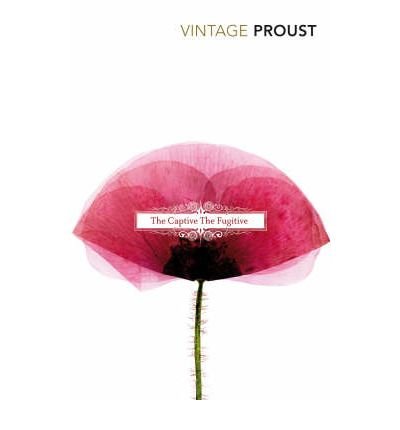
What is an ideologue? What is an intellectual? What is fake news? How do you decide if a source is reliable? Glenn greenwald at the Intercept versus Jimmy Dore show versus Max Keiser Report versus Alex Jones at infowars
SENIORS WITH STUDENTS / THE RE-ABLED BODY
Apocalyse Now
Avital Ronnel, Loser Sons
Kathy Acker, Don Quixote
Jack London, "To Build a Fire"--sabotage
CIA Manual for Purposeful Stupdity
William Faulkner, A Rose for Emily
Samuel Taylor Coleridge, "Rime of the Ancient Mariner"
T.S. Eliot, "The Wasteland"
William Empson, "Obscurity and Annotation"
Thomas Bernhard, Extinction
Thomas Bernhard, Correction
Franz Kafka, The Verdict
Franz Kafka, Before the Law
Edgar Allen Poe, William Wilson
Stefan Zweig, Amok
Nathaniel Hawthorne, Wakefield
MAX OPHULS, LETTER FROMAN UNKNOWN WOMAN
EDGAR G. ULMER, DETOUR
Edouard Levé, Suicide and Auto-Portrait
Hart Crane, selected poems
Sigmund Freud, A Child Is Being Beaten
Paul Roazen, Brother Animal: The Story of Freud and Tausk
Samuel Beckett, From an Abandoned Work
James Joyce, "The Dead"
f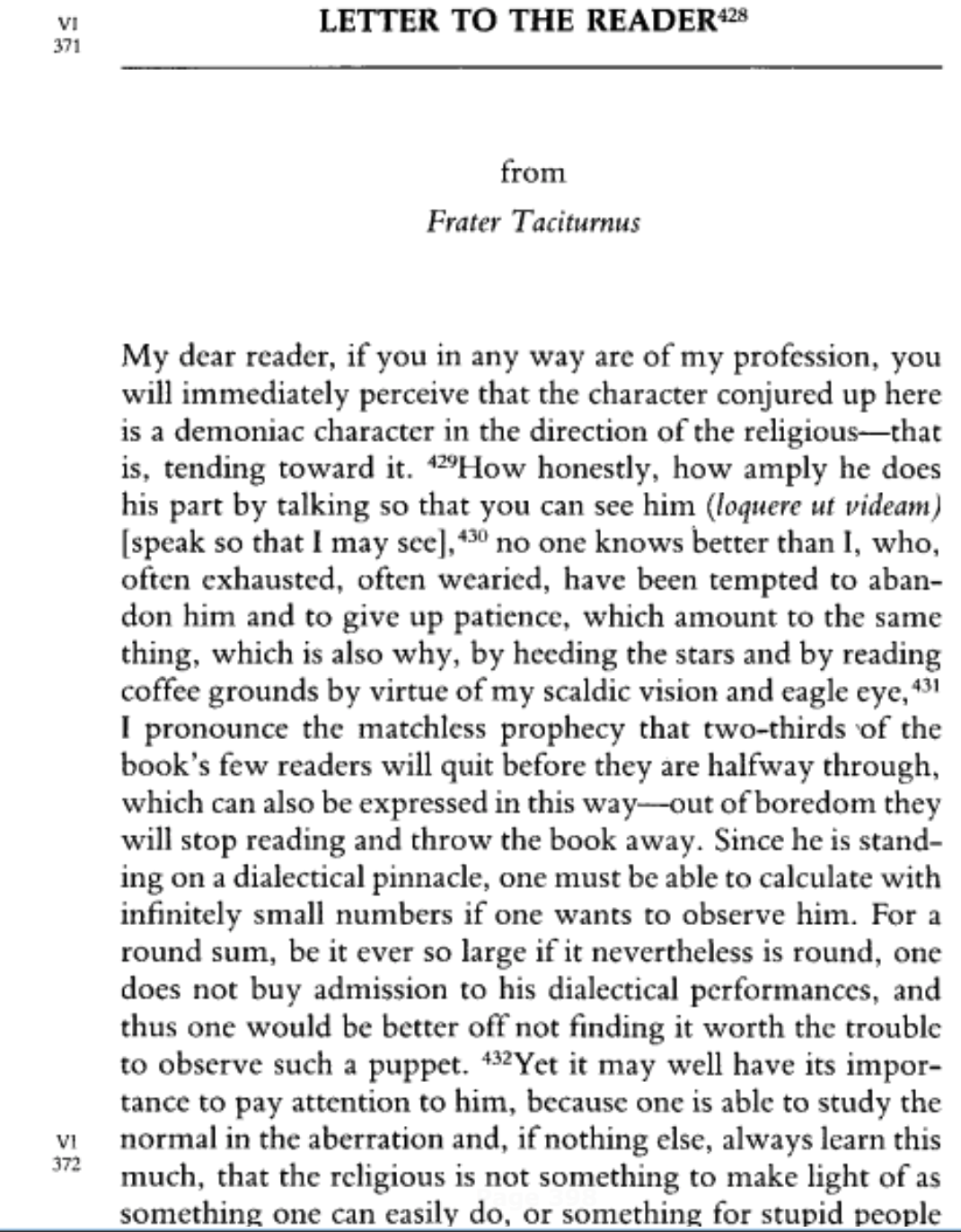
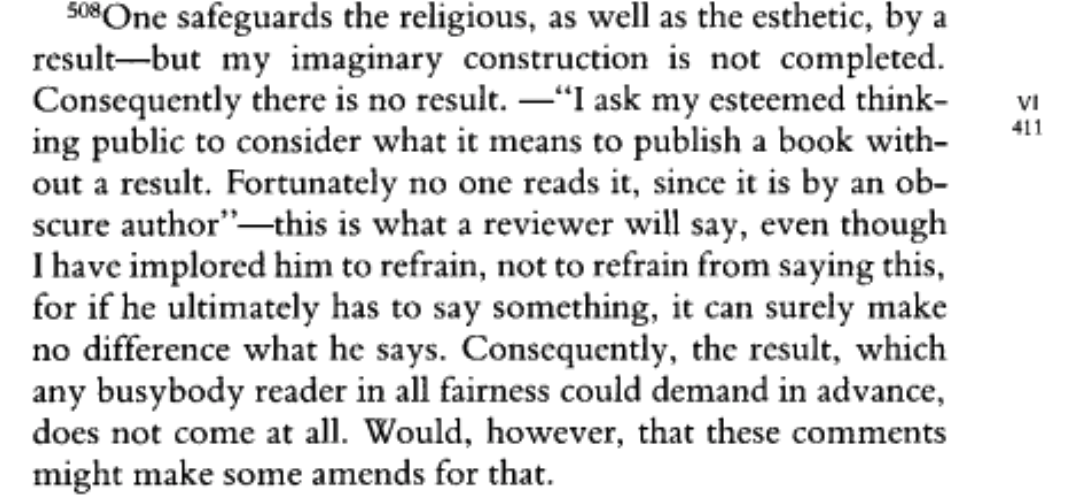
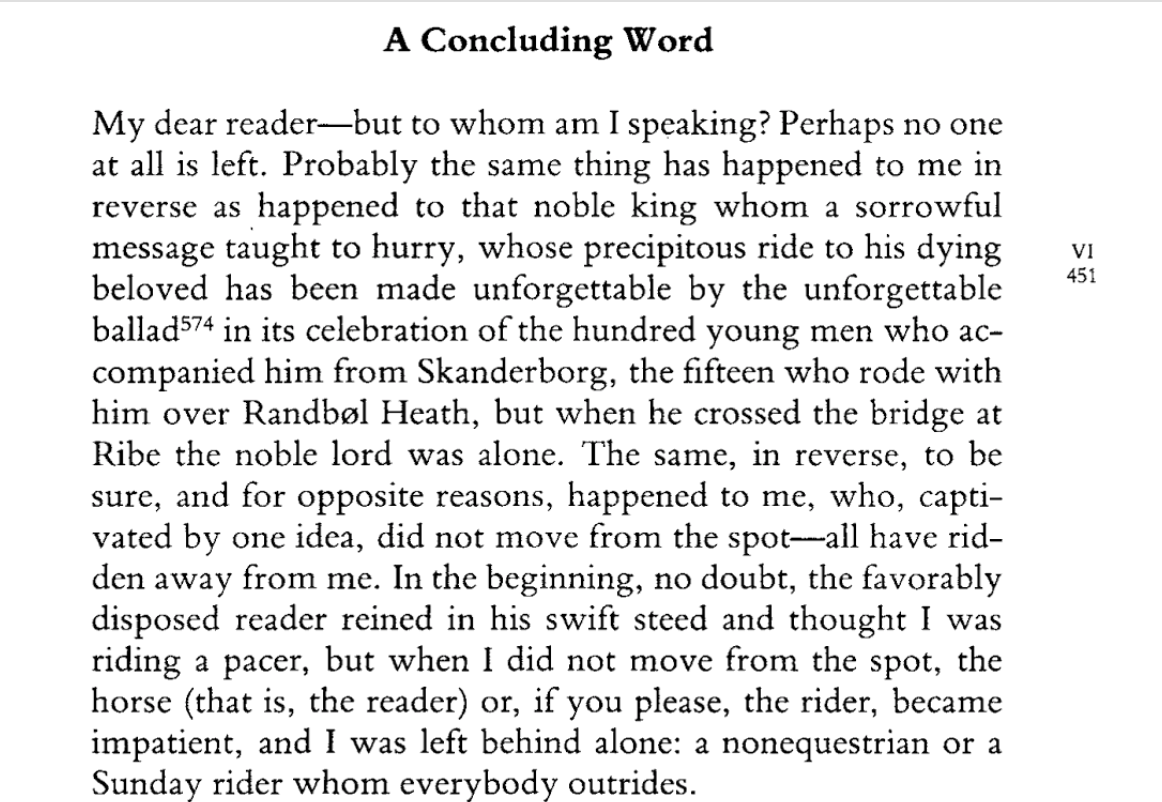
Pareidolia and apophenia
Yanny vs Laurel video: which name do you hear?
Oblique Perspective in Hans Holbein's The Ambassadors (anamorphosis); Jacques Derrida on oblique reading in Passion: An Oblique Offering.
E. H. Gombrich, Art and illusion: A study in the psychology of pictorial representation
John Lee Hooker, Charlie Musselwhite
Gadaj?ce g?owy / Talking Heads (1980)

What I wrote about the loser back in 1998 in my book Unspeakable ShaXXXspeares:
--“How do extra-academic representations of Shakespeare and their reception conflict with the widespread academic desire to regulate and control how Shakespeare is received both inside and outside of academia?” (xii)
--np “What demands consideration in the 1990s, however, is the way Shakespeare is being recoded for a kiddie culture in which ‘cool’ losers transvalue stupidity, indeed, in which stupidity and politics are not easily opposed, either in popular culture or in criticism and theory. The present transvaluations of stupidity and loserdom have significant implications both for pedagoy and for the way we think of the academic intellectual: If cultural critics now eschew an older model of the academic intellectual as vanguard reformer of politically incorrect popular culture, what, if any, possibilities remain for a newer model of the intellectual as a student who learns from popular culture, essentially now co-extensive with youth culture, once that culture announces itself as dumb and dumber?” (xiv)
--“the extra-academic Shakespeare can trump the academic one because it is cooler.” (8)
--np “The citation of Shakespeare as paradoxically cool and uncool is also symptomatic of America’s own doubts about its own status as an imperial power. Shakespeare appears in American kiddie culture not as unmarked, universal, but as marked, colonial, British. He is thus a symptom of an unconscious and vestigial American postcolonial identification with British colonial culture.” (11)
--“The more one masters the archive, the more one appears to have the phallus, the more one is likely to be regarded as a loser (though one can be regarded as a cool loser through a certain self-ironizing self-consciousness that falls short of self-assurance, displays one’s own insecurities by voicing all possible criticism before they can be made by others). The fan is the one who wants to know it all, whose [22] encyclopedic will to knowledge yields at worst an obnoxious, obsessive bore, at best an academic such as the professor in the 1993 Robert Redford film Quiz Show who simply gives the answers written by the show’s producers. Loserdom reveals the stupidity and uncoolness of adopting the position of the one who knows. No one, queer or straight, will hear every unspeakable version of Shakespeare. One’s knowledge can always be trumped by someone else. Loserdom is inescapable.
Loser criticism, I hope it is now clear, deconstructs the opposition between the stupid and the intelligent, the political and the apolitical, by means of which cultural criticism presently legitimates itself, and it therefore does not arrive at what some cultural critics might consider to be a more fully political critical practice. For it is precisely the move to arrive at the ‘truly’ political practice that turns out to be, well, kind of stupid in that it simply reproduces the problem it appears to resolve.” (21–22)
--“Technology is always on fast forward.” (23)
--“disorienting breakdown” (73)
--np “I am interested in another problem, however, one that I think is more obvious but one that tends nonetheless not to be recognized or discussed. This more obvious problem, in my view, is that the analogy between academic star and porn star suggests just how far from real stardom the academic is. For if writing about porn does make a critic sexy, we might ask ‘sexy to whom?’ The cultural critic may fantasize about being read and recognized by everyone, but like the porn star, he or she is actually known only by a narrow circle of people, and by almost no one outside it. The academic’s identification with the porn star suggest something else about the value of academic criticism. Unlike Hollywood stardom, which thrives primarily on exclusion and offers only the illusion of democratic access (we all know that not everyone can be discovered at Hollywood and Vine), porn stardom has become increasingly democratic.” (124)
--“The analogy between academic stardom and porn stardom suggests, then, that academic stardom may be relatively open and democratic, but that its accessibility is precisely a function of its cheapness.
Of course, one could argue that a truly transgressive, queer, postmodern criticism would attempt to ‘pervert’ everything and not be worried about being called perverted or about academic stardom. [125] This critic would abandon, that is, the modernist distinction between art or criticism, on the one hand, and pornography, on the other. There is no escaping normalization, however, at least not in academia.” (124–25)
--“Whether cultural critics find it flattering that their criticism is regarded by the porn industry as unrecyclable remains to be seen.” (125)
--np “Shakespeare appears in these films, I suggest, as an unconscious symptom of an American ambivalent postcolonial identification with British colonial culture, at once foreign and native, a figure both of a revolutionary break with Britain and of a prerevolutionary identification with it. As such, Shakespeare is an icon to be both destroyed and worshipped, both abjected and incorporated.” (130)
--“As Buell observes (438), there is no decisive moment at which one can say that postcolonialism comes to an end in the United States. The postcolonial thus necessarily intersects with American imperialism [131] rather than is entirely displaced by it.” (130–31)
--“As icon of (Western) civilized values, Shakespeare authorizes an all-out attack both on the Third World and on immigrants (and ethnic and racial minorities) while at the same time distancing the U.S. from British imperialism. On the other hand, Shakespeare gives rise to a national fantasy of supplanting America’s postcolonial status altogether. He is Americanized.” (131)
--“Hollywood was of course largely the creation of Eastern European immigrants eager to forget their past and become ‘American’ (Gabler 1988; Baxter 1976). Whereas the earliest silent Shakespeare films to assimilate immigrants and to legitimate film generally could count on the audiences’ familiarity with Shakespeare, these more recent films I discuss here were produced at a moment when Shakespeare as signifier of America’s supposed multicultural universality was being eclipsed by a new signifier of what had actually been American cultural imperialism all along, the action hero. By the late 1980s, entertainment had become, after aerospace technology, the second biggest export industry for the United States: the exportation of missiles converged with the exportation of action film spectaculars that displayed hard American bodies, often under duress (Jeffords, 1989).” (132)
--“By yoking Shakespeare to the action picture, these films paradoxically recode American imperialism as a postcolonial cultural and political export: the United States brings a revolution to those it colonizes, and colonials cannot, in the logic of this fantasy, legitimately revolt in turn from the revolution.” (133)
--np “The films I will examine implicitly or expliclity deconstruct a distinction between Shakespeare original and Hollywood sequel, but not by informing their audiences of what Shakespeareans know, namely, that Shakespeare wrote for a theater in which hack writing was the norm and that he wrote his own sequels […] and prequels (the epilogue to Henry V). He also recycled characters such as Falstaff. Instead, these films call attention to a fantasized Shakespeare by underlining the way that the foreign, alternately coded as British and Third World, is itself an American construction, a projection that licenses its own self-cannibalizing mode of cultural production.” (134)
--“Shakespeare doesn’t go down well precisely because he is foreign, a step-primal-father, so to speak, with Americans as his stepchildren (perhaps bastards at best, with Shakespeare as the sperm donor). Shakespeare remains encrypted and incorporated and [151] thus unmourned in American popular culture, a point to which I will return in the conclusion.
A kind of anorexic refusal to cannibalize Shakespeare and English culture may be read as a defense against the prevailing cultural cannibalism implied by the sequel.” (150–51)
--“Shakespeare can’t simply be terminated by Americans, then, because he functions not just as a signifier of foreign evil but as an ideal American actors and directors can never reach. They can’t do Shakespeare the way it is supposed to be done.” (152)
--“In the face of the [152] exhaustion of American genres such as the Western, film noir, the gangster picture, and the rogue cop or action picture, the actor and director of Last Action Hero wish to return to an even earlier moment, a moment prior to Houdini, prior to the action picture, the moment of (Olivier performing) Shakespeare’s Hamlet. But Shakespeare doesn’t provide any real critical leverage any more than any of the citations of American films do.” (152)
--“the ‘very pink of courtesy’” (159)
--“While noise may work this way in local cases, my interest in the unspeakable lies in the way it poses a generally unacknowledged problem for cultural critics, namely, the potential triviality of transvestite resignifications of gender in popular film.” (168)
--“A given text may be dismissed on the grounds that it is too easy to read, that it’s not hard enough, as it were.” (168)
--“Shakespeare’s centrality in relation to transvestism has gone unquestioned. He is often assumed to be foundational, though critics may disagree as to whether Shakespeare is a help or a hindrance in the contemporary political scene.” (169)
--“As her competitiveness and jealousy get the better of her, Vanessi agrees to play Kate and so too becomes subject to the same male gaze.” (174)
--“a dialectic between penile and vocal potency” (196)
--“The loser is the pivotal figure of American culture, the one through whom national fantasies are always projected. The loser is the one who gets to have a secondary version of what we can’t have, and this secondary version is both more and less than what the winner has. The loser is thus a paradoxical figure, one who settles for less, knowing that getting more, being the real thing, only means one becoming a more massive loser. Rather than try to become the star, for example, who is unhappy being a star anyway, the loser backs off and settles for something less, such as performing as a stripper. Into that work a woman might bring idealized fantasies of free women such as the 1920s flapper, idealized because decontextualized from all constraints placed on them by family, boyfriends, or husbands. Yet the loser always remains fixated on the thing she or he didn’t go for and so never really manages to accommodate to having settled for less.” (213)
--np “If the loser is the dominant figure of American culure, he is not a self-consistent one. Indeed, the loser has undergone a number of changes as he or she emerged as a figure in the 1990s. […] In literary terms, it might be read as the loss of high (literary) culture as a fixed referential point, of a particular icon such as Shakespeare as the phallus. […]. This displacement of the literary by the cultural might also be read as a displacement of book culture by movie culture.
In positioning the Shakespeare teacher as loser, popular films implicitly question whether the Shakespeare teacher has anything left to teach.” (214)
--“mediatization is doubled, split between the obsolete and the new, between the old and the young” (222)
--“The mediatization of the intellectual and of pedagogy throws into relief the academic unconscious rather than bypasses it. Cultural criticism has taken increasingly hybridized forms: book reviews are presented as articles or as chapters in books of criticism; critics include interviews with themselves in their books. One could add that another symptom of the academic unconscious is the way texts conventionally considered marginal, such as book blurbs, footnotes to other critics, prefaces, acknowledgments, even critics’ clothes and the colors on dustjackets, are increasingly the focus of critical scrutiny.” (225)
--“This book has been concerned with reading American Shakespeares in the 1980s and 1990s as symptoms, some of them rather queer, of an American national and academic unconscious. In examining the figures of the fan, the porn star, the transvestite, and the loser in terms of the castrated subject position produced by what I have called kiddie culture. I have also sought to rethink the extent to which cultural politics can underwrite a new model of the academic intellectual as fan, one founded on the liberatory and transgressive advancement of a heterogeneous, progressive political agenda. This intellectual ‘gets down’ with popular culture, unlike the older intellectual, who was a hectoring, authoritarian reformer of popular culture from above. In analyzing queer, posthermeneutic replays of Shakespeare in the context of American kiddie culture, my larger aim has been to rethink the intellectual not as the one who is into technoculture but as the loser. What are we to make, then, of the loser academic intellectual? Is the loser the one who can’t lose, or is the loser a figure of the loss of loss, of a nostalgia for mourning?
Some critics might want to ask a slightly different question: what does one gain from seeing the cultural critic as loser? What exactly has the loser lost?” (239)
--“I would argue that the loser has nothing to do with class position nor with having been disenfranchised politically or economically; that is, even if material and symbolic goods are [240] distributed unevenly and unjustly so that we might in many cases distinguish winners (the dominant) from losers (the subordinate), the loser can as easily be found among the wealthy as he or she can among the poor.” (239–40)
--“In short, the loser, either as a literary writer or a cultural critic, is not possible in Bourdieu’s model (he would be regarded only as a winner trying to win by masquerading as his opposite). In Bourdieu’s account, the ‘loser takes all’ (1996, 21).’” (240)
--“Shakespeare remains a loser in American popular culture.” (242)
--“Whether or not nonacademic writers like Gaiman gain prestige and legitimacy for their chosen medium through the citation of Shakespeare, their decentering of Shakespeare as loser throws into relief the way the Shakespearean who identifies (with?) Shakespeare as upwardly mobile might too be considered a loser insofar as Shakespeare remains a loser in American popular culture.
One might also regard the academic loser as having contacted [contracted sic.] a bad case of what Walter Benjamin (1974a) called ‘left-wing melancholy,’ someone who sees injustices from a left perspective but who has long ago given up on the possibility of seeing any social changes that would correct them. But the question remains: from what non-loser, non-melancholic position could a Left critique be articulated? What kind of authority does such criticism have, given the radical decline in value that criticism has outside (and perhaps even inside) the university?
If the academic intellectual is now, like it or not, in the position of loser, we may ask whether that is a losing proposition for the academic intellectual. One rather optimistic answer is that the loser embraces his or her own obsolescence, refusing a tech-no-future through melancholia. The endless ‘whatever’ refrain of the 1990s might be read not as a return to adolescent indifference and a culture of narcissism, but as an uncalculated commitment to knowledge without a program, without an economy either of total loser or of less is more. For an example of this kind of loser, we might turn again to Walter Benjamin for an early version of it. In his essay, ‘Unpacking My Library,’ Benjamin notes the passing of his paradoxical mode of collecting books he never reads:
The book borrower of real stature whom we envisage here proves himself to be an inveterate collector of books not so much by the fervor with which he guards his borrowed treasures and by the deaf ear which he turns to all reminders from the everyday world of legality as by his failure to read these books…. You should know that in saying this I fully realize that my discussion of the mental climate of collecting will confirm many of you in your conviction that this passion is behind the times, in your distrust of the collector type. Nothing is further from my mind than to shake either your [243] conviction or your distrust. But one thing should be noted: the phenomenon of collecting loses its meaning as it loses its personal owner. Even though public collections may be less objectionable socially and more useful academically that private collections, the objects get their due only in the latter. I do know that time is running out for the type that I am discussing here and have been representing to you a bit ex officio…. Only in extinction is the collector comprehended. (1974, 62 and 66–67) (242–43)
For Benjamin, the obsolete is identifiex with childhood, with what is not usable from an adult perspective.
Yet a Benjamian notion of an intellectual as outmoded is itself outmoded in the 1990s. As Thomas Bernhard makes clear in his novel The Loser (1993), the loser is always too late, always misses what Bernhard’s narrator repeatedly calls ‘the ideal moment.’ Precisely because of the self-defeating way the loser embraces the dumbing down of kiddie culture, a culture that registers, as I noted earlier, the loss of the kind of childhood Benjamin prized, it is now difficult to decide whether the loser is really about defeating loss or about staging a nostalgic desire for melancholia in a moment when mourning is no longer possible. Thus, the current version of the intellectual as loser, that is to say, the poseur, the data dandy or dilettante, may always be regarded as a loser (in the insulting sense of the term) paradoxically because he merely poses as the loser (in the laudable, cool sense of the term).
If the undecidable status of the Shakespeare teacher as loser enables neither a clearly defined alternative mode of pedagogy nor a new model of the intellectual, it does nevertheless raise the question of what it means to teach Shakespeare in forms so reduced they may be characterized as unspoken and perhaps forever ‘unspeakable.’ Assuming that mourning and interpretation are roughly equivalent, we might wonder whether post-hermeneutic ShaXXXspeares that cannot be mourned can still be interpreted and taught. Are the replays and citations I have analyzed for the most part as ‘unteachable’ as they are ‘unspeakable?’ If not, how exactly might post-hermeneutic unspeakable ShaXXXspeares, those in which there are no genuinely dialectical relations between the ‘original’ texts and their mediatized [244] citations, be integrated into canonical Shakespeare courses? If the texts cannot be located as part of a play’s performance history or in a traditional Shakespeare filmography, what referent would legitimate their study in the classroom?” (242–43)
--“Unspeakable ShaXXXspeares exist somewhere between the library and the shopping mall, between arcana and ephemera, between the obsolete and the new. The unspeakable is about a felt but an unknown, undetectable loss. As such, whether unarchived, post-hermeneutic ShaXXXspeares are worth mourning or are in fact no big loss will remain, at least in the foreseeable future, open to question.” (246)